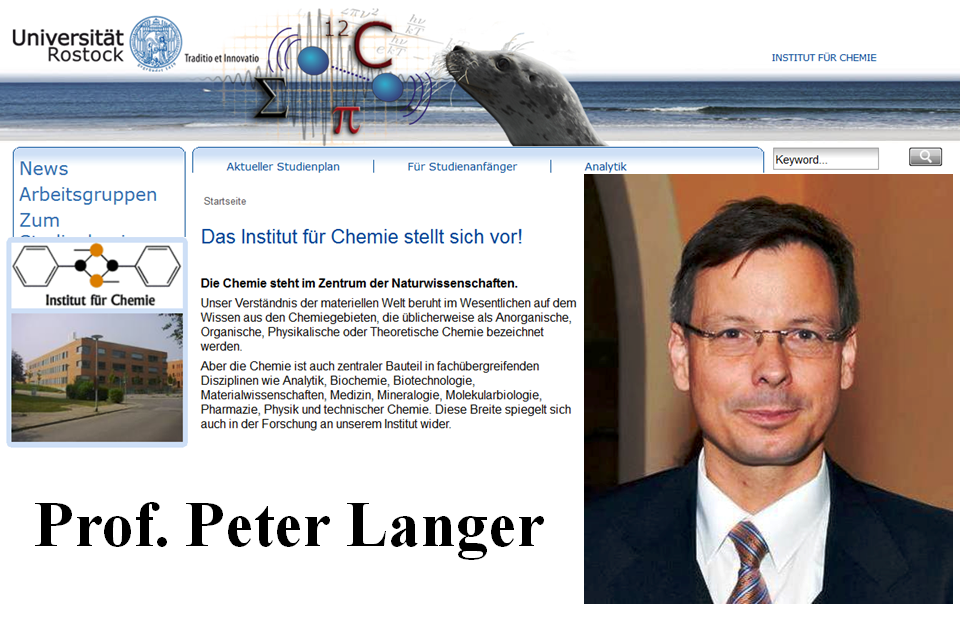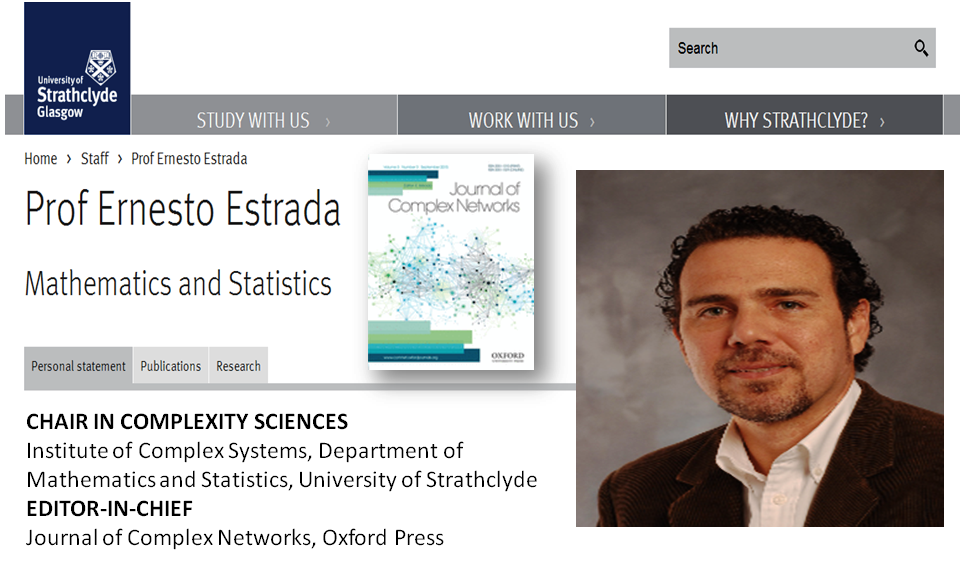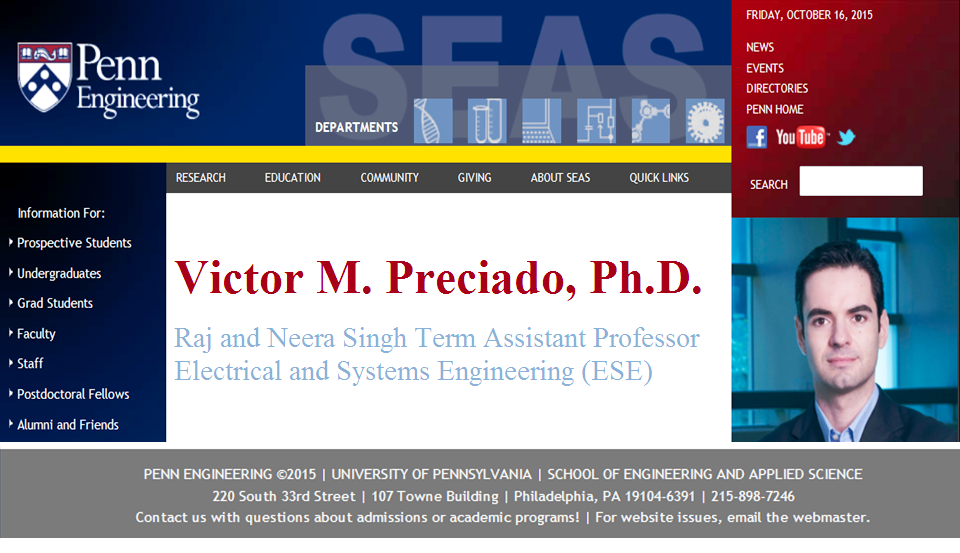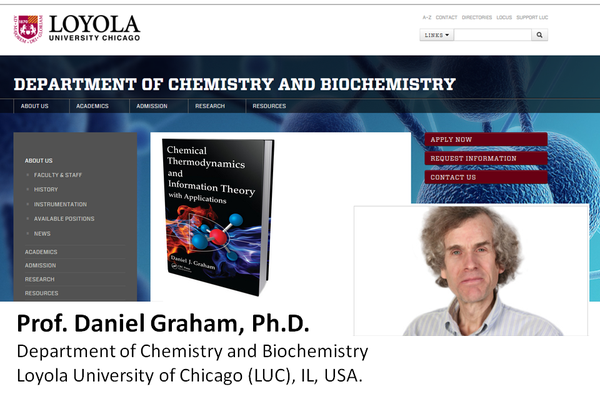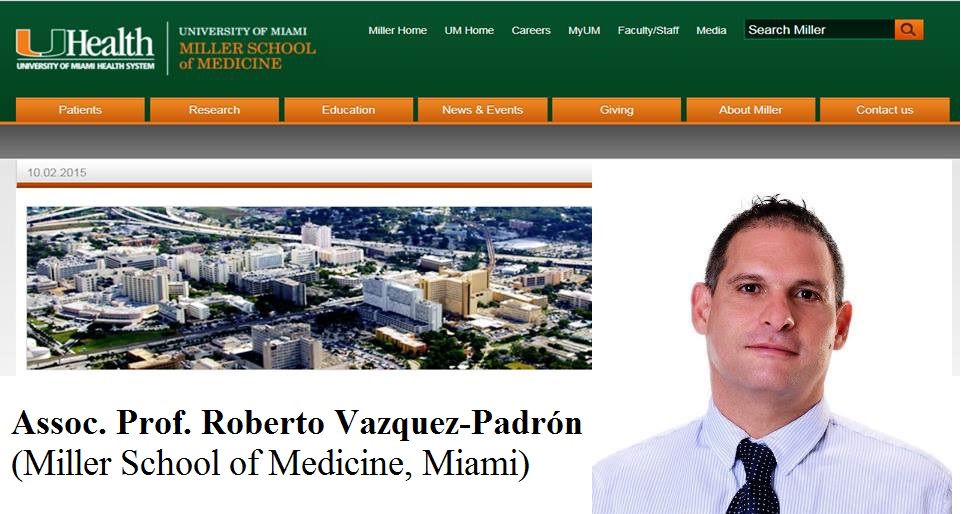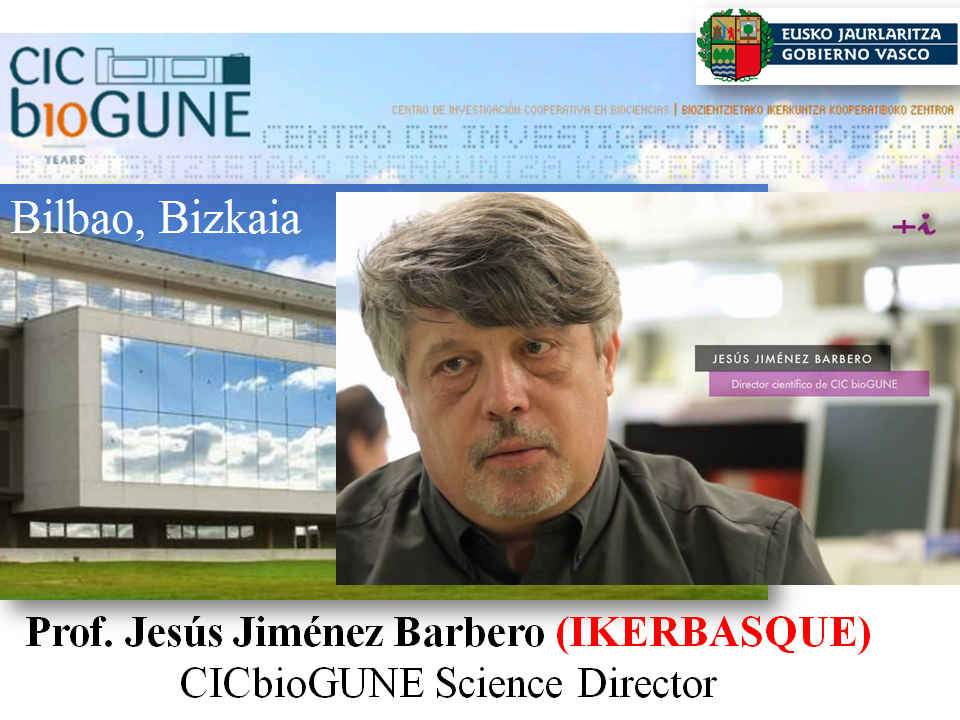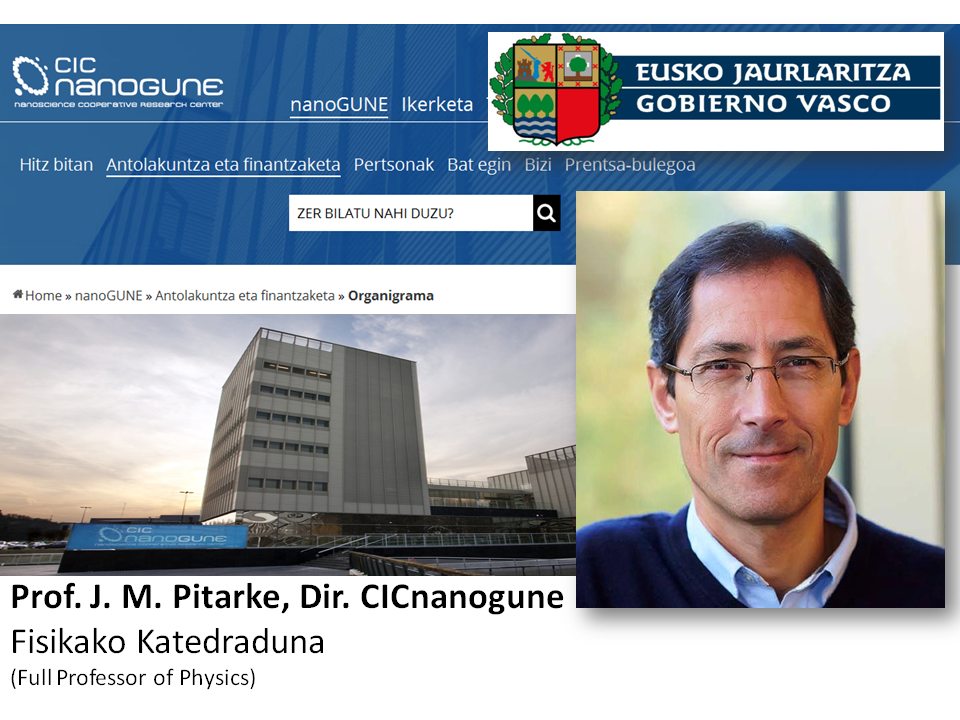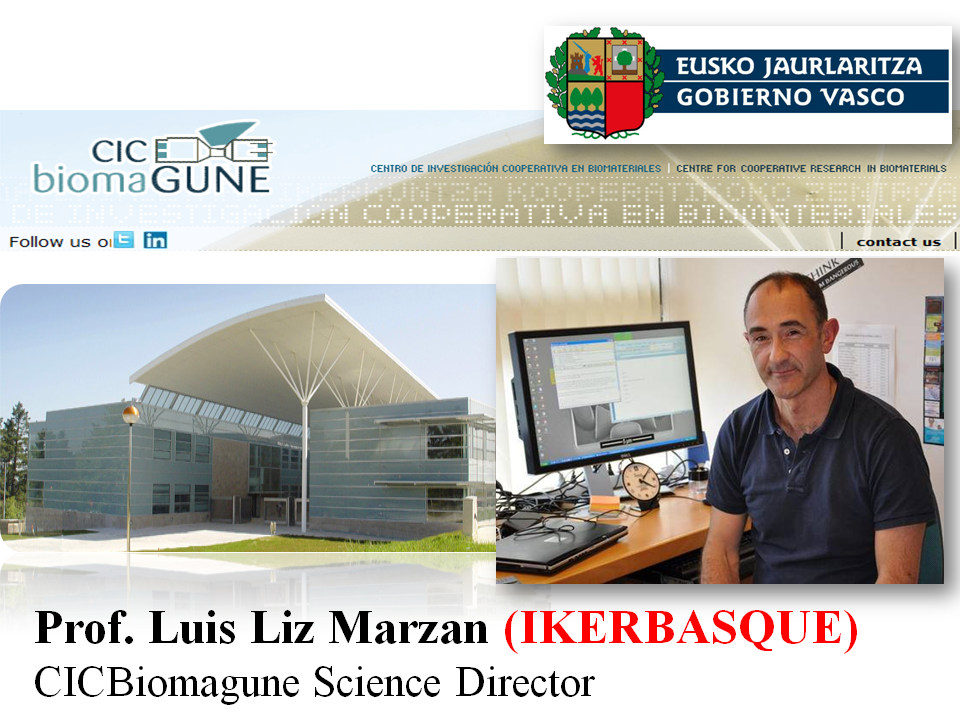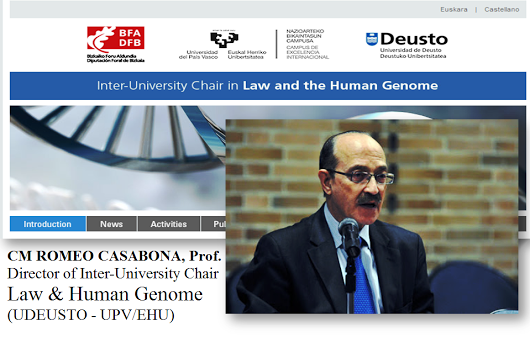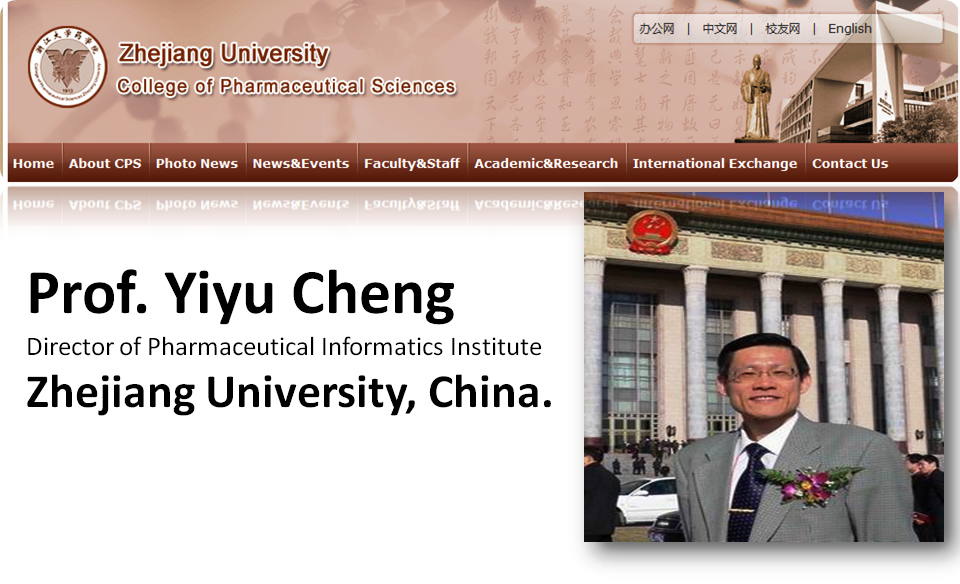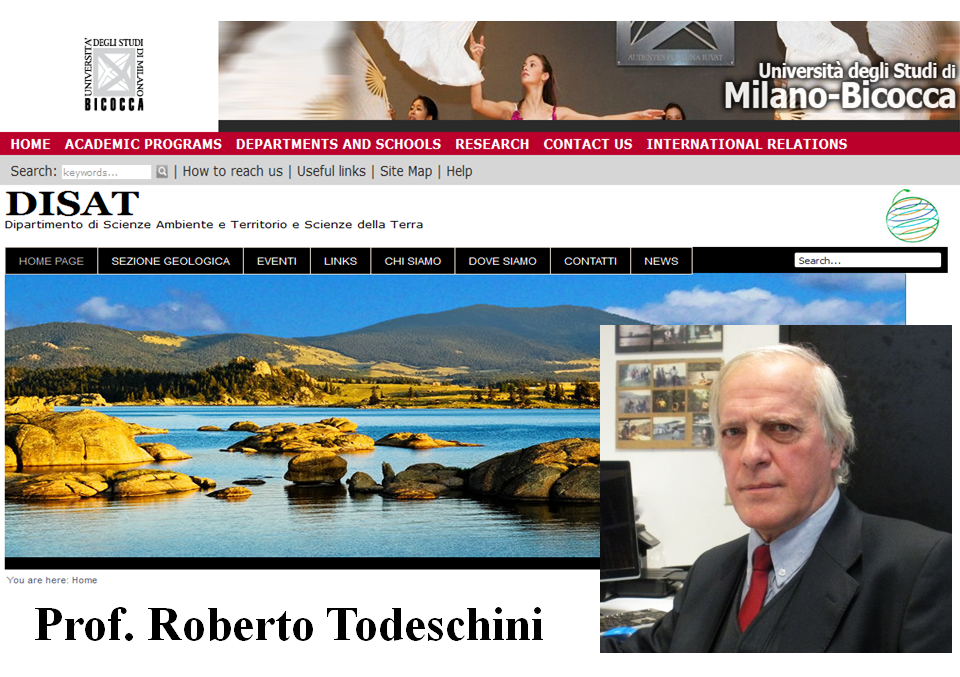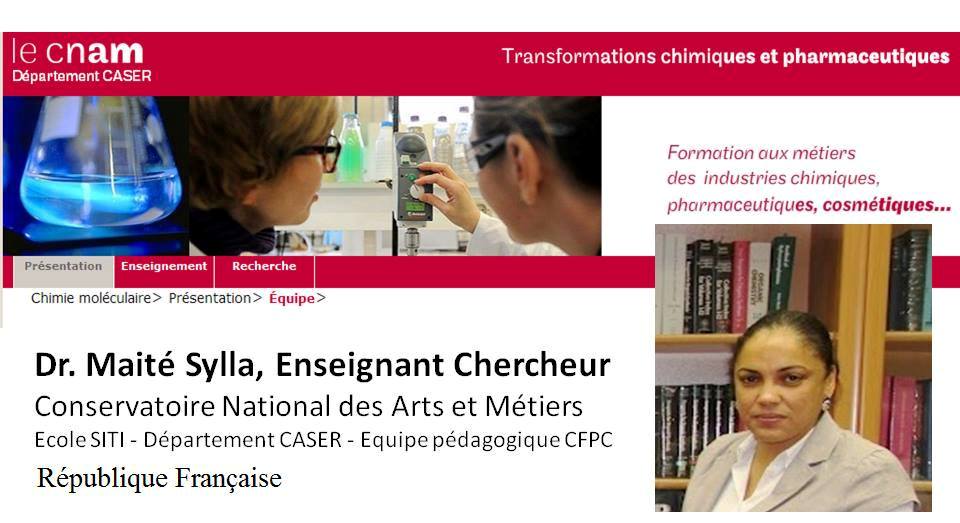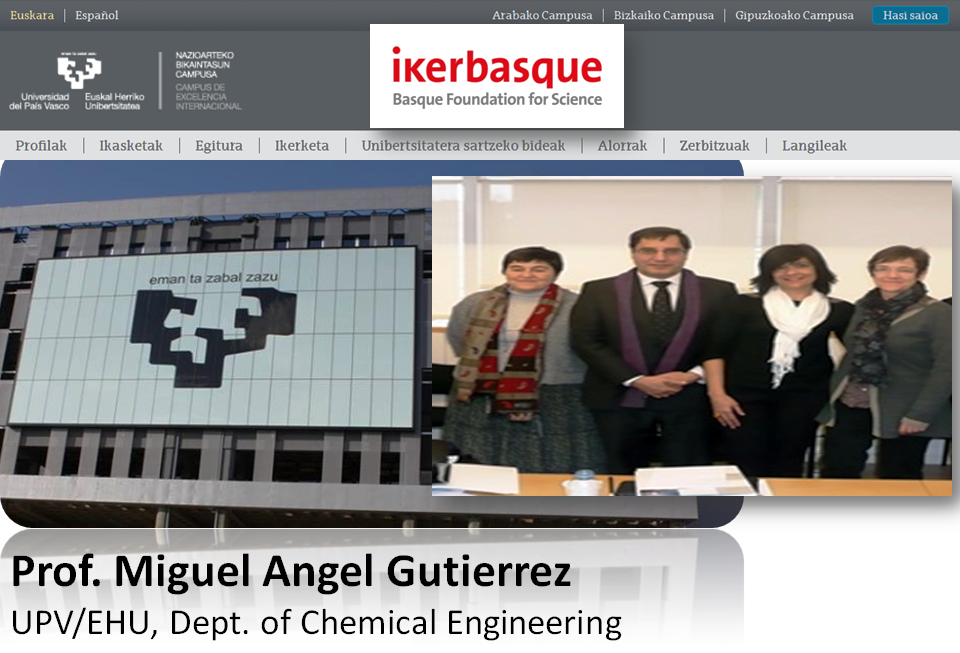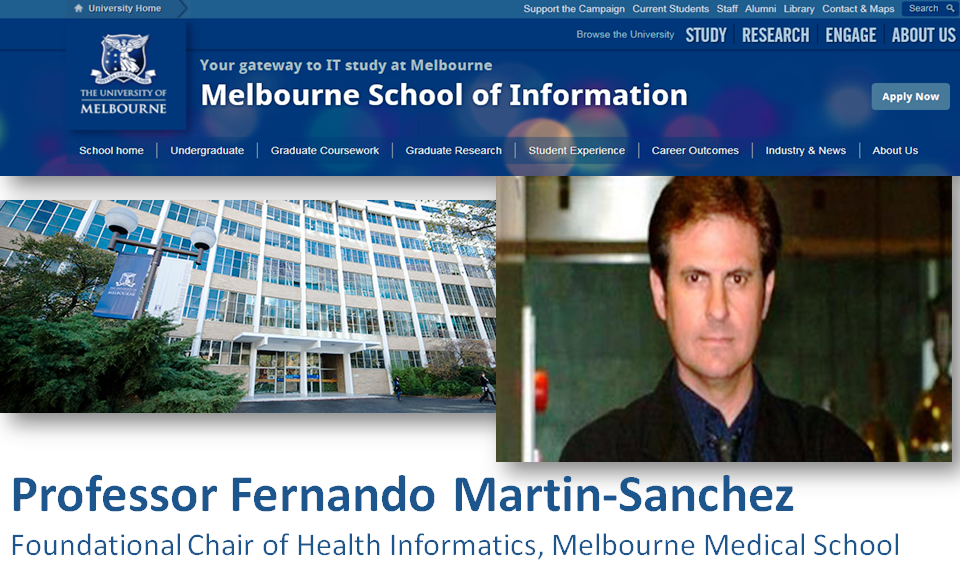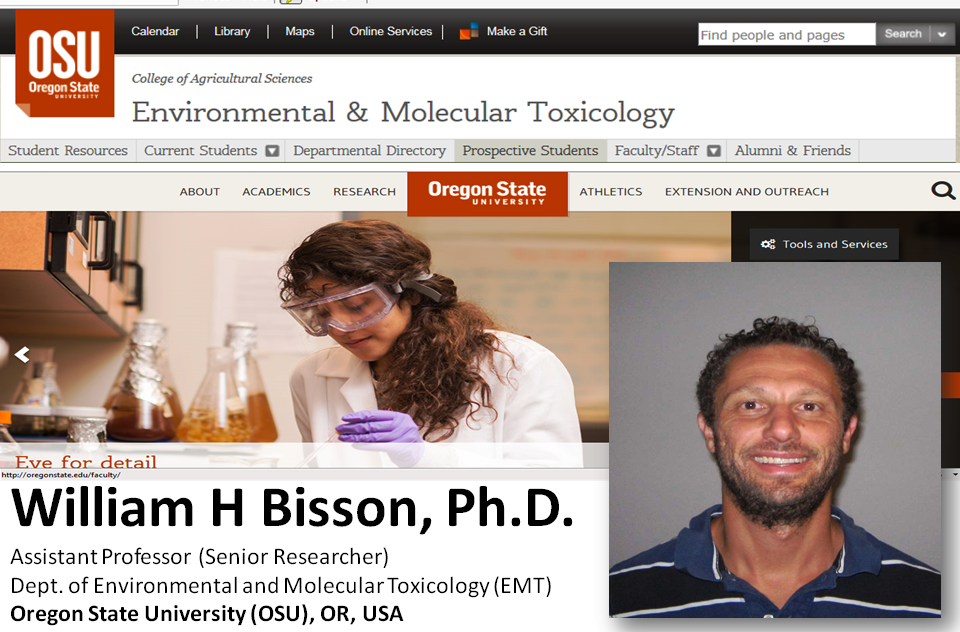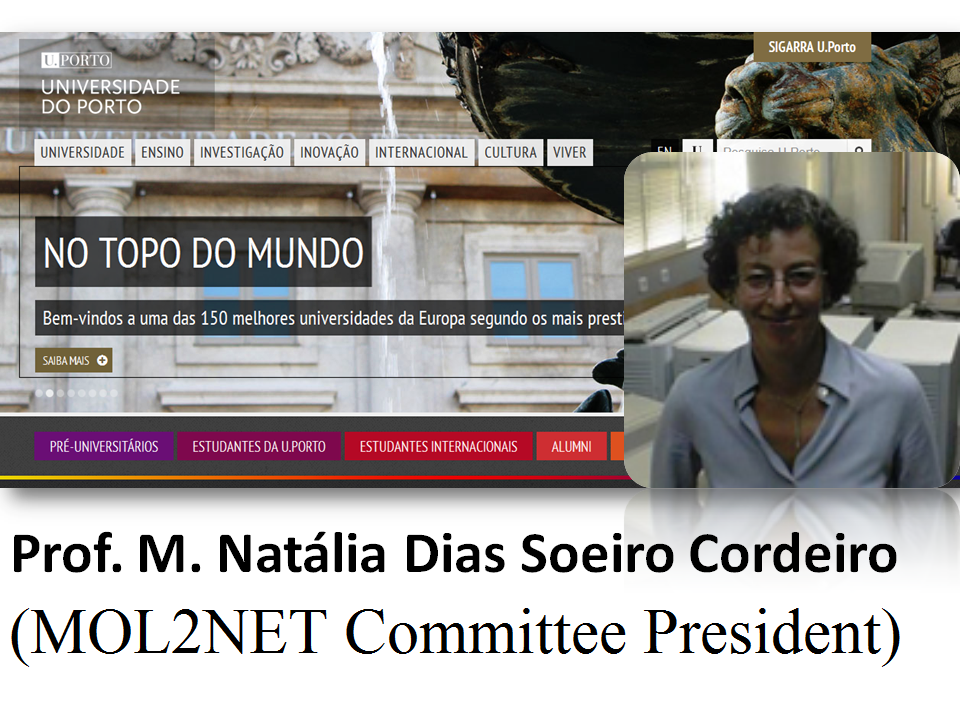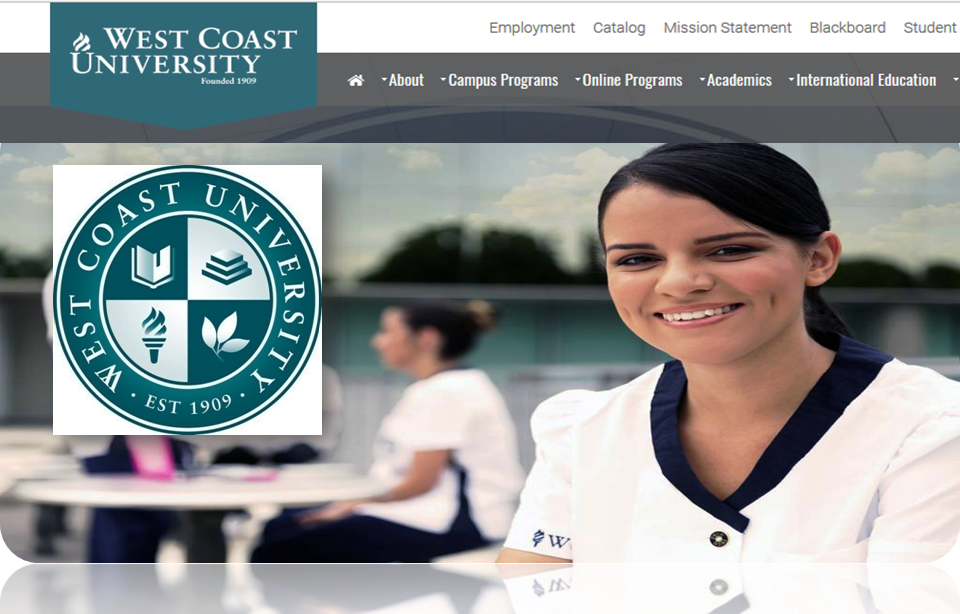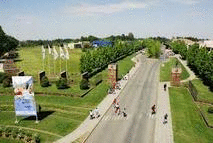
MOL2NET'16, Conference on Molecular, Biomed., Comput. & Network Science and Engineering, 2nd ed.
MOL2NET: FROM MOLECULES TO NETWORKS
15–20 October 2022
Science, Chemistry, Nanotechnology, Materials Science, Pharmaceutical Sciences, Biomedical Engineering, Regulatory Affairs, Computer Science, artificial intelligence
- Go to the MOL2NET'16 CONGRESSES
-
- 00. Editorial & Proceedings Book
- 00. Welcome Videos (English, Chinese, Hindi, Spanish, Portuguese, French, and Euskera)
- 01. CHEMBIOINFO-02: Chem-Bioinformatics Congress Cambridge, UK-Chapel Hill and Richmond, USA, 2016.
- 02. CHEMBIOMOL-02: Chem. Biol. & Med. Chem. Workshop, Rostock, Germany-Bilbao, Spain-Galveston, Texas, USA, 2016
- 03. USEDAT-02: USA-Europe Data Analysis Training Program Workshop, Cambridge, UK-Bilbao, Spain-Miami, USA, 2016
- 04. NANOBIOMAT-02: Nanotechnology & Materials Science Congress, Jackson & Fargo, USA, 2016.
- 05. NICEXSM-02: North-Ibero-American Congress on Exp. and Simul. Methods, Valencia, Spain-Miami, USA, 2016
- 06. MODECO-01: Workshop on Molecular Diversity & Ecosystems, Puyo, Ecuador-Porto, Portugal, 2016
- 07. AIMEDIC-04: AI, Med. Info., & Biomed. Eng. Congress, Coruña, Spain-Carleton, Canada-Stanford, USA, 2016
- 08. MOL2NET'16 Transversal Workshops
- 09. MOL2NET Channels
- 10. Session 10 (Empty )
- 11. Session 11 (Empty)
- 12. Session 12 (Empty)
- 13. Session 13 (Empty)
- 14. Session 14 (Empty)
- 15. Session 15 (Empty)
- 16. Session 16 (Empty)
- Event Details
-
- Welcome from the Chair
- Event Calls
- Conference Chairs
- MOL2NET'16 CONGRESSES
- Instructions for Authors
- List of Accepted Submissions
- List of Authors
- HONOR ADVISORY COMMITTEE
- SCIENTIFIC COMMITTEE (ABROAD)
- SCIENTIFIC COMMITTEE (LOCAL)
- STEERING COMMITTEE OF CO-CHAIRS
- Conference Schedule
- Conference Organizers
- List of Keynotes & Videos
Welcome from the Chair

International Partners. Internationally, professors and researchers from Stanford Center for Biomedical Informatics Research (BMIR), Stanford University (STANFORD), USA; Center for the Study of Biological Complexity (CBDS) of Virginia Commonwealth University (VCU), USA; Natural Resources Research Institute (NRRI), University of Minesota (UMN), USA; Miami Dade College (MDC), USA; North Dakota State University (NDSU), USA; Centre National de la Recherche Scientifique (CNRS) and Université Paris-Saclay (UPS), Paris, France, European Bioinformatics Institute (EMBL-EBI) Cambridge, United Kingdom, Universität Rostock Institut für Chemie (UROSTOCK), Germany; and other institutions are co-founders and/or supporters of this conference.
01. CHEMXEDIT-02, Chem. Exp., Edu., & Info. Tech., Bilbao, Spain-Paris, France-Miami, USA, 2016
02. CHEMBIOMOL-02: Chem. Biol. & Med. Chem. Workshop, Rostock, Germany-Bilbao, Spain-Galveston, Texas, USA, 2016
03. USEDAT-02: USA-Europe Data Analysis Training Program Workshop, Cambridge, UK-Bilbao, Spain-Miami, USA, 2016
04. NANOBIOMATJND-02: JSU-NDSU Nanotech. & Materials Science Workshop, Jackson & Fargo, USA, 2016.
05. BMEICB-02 Second Bioinformatics Meeting of The School of Bioinformatics Engineering, Talca, Chile, 2016
06. MODECO-01: Workshop on Molecular Diversity & Ecosystems, Puyo, Ecuador-Porto, Portugal, 2016
07. SRI08: The 8th Annual Symposium of Summer Research Insitute, STU, Miami, USA, 2016
08. UFI-QOSYC01: 1st Young Scientist Workshop on Organic Chemistry, Bilbao, Spain, 2014
09. IWMEDIC04: International Workshop in Medical Informatics and Integration of Clinical Data, Coruña, Spain, 2016
10. NIXMSM-02: North-Ibero-American Exp., Model., and Simul. Meth. Workshop, Valencia-Spain, Toluca, Mexico-Miami, USA, 2016
11. SUIWML01: International Workshop on Machine Learning in Biomedicine, Soochow, 2016
MOL2NET-MDPI JCR Journals Issues
MOL2NET-USEDAT Training Program
 https://orcid.org/0000-0002-9392-2797, Email: mol2net.chair@gmail.com
https://orcid.org/0000-0002-9392-2797, Email: mol2net.chair@gmail.com(1) Dept. of Organic and Inorganic Chemistry and Basque Center for Biophysics, University of the Basque Country UPV/EHU , 48940, Leioa, Biscay, Spain. (2) IKERBASQUE, Basque Foundation for Science , 48011, Bilbao, Biscay, Spain.
Call for Papers
2nd MOL2NET, International Conference on Multidisciplinary Sciences will be held online from 05-15 December 2016. The objective of this event is to bring experimental and theoretical scientists, health professionals, bioscience law experts, entrepreneurs, and engineers working in multi-disciplinary research fields to a common platform where they can present and discuss their recent contributions without the need to travel. All communications will be published online at SciForum site of hosted by MPDI editorial, Basel, Switzerland: https://sciforum.net/conference/mol2net-2.
NOTE: Contributions of three types: (1) experimental only, (2) theoretical only, or both (3) experimental-theoretical research (optional), will be covered. In this sense, experimental communications do not have to include theoretical studies (and vice versa). In fact, one of the main aims of the conference is to promote synergies between experimental and theoretical sciences. Submissions focusing on different scientific areas will be covered, with emphasis in five topical sections:
Sections
- Research in Inorganic, Analytical, Physical, and Organic Chemistry
- Medicinal Chemistry, Biosciences, Biotechnology, and Drug Discovery
- Polymers, Materials, and Nanosciences
- Medical Sciences and Biomedical Engineering
- Statistics, Artificial Intelligence, Data Science, Complex Networks Analysis.
The conference will be completely free of charge, including subscription, participation, and publication of communications on the conference platform. There will be a possibility to submit selected papers (optional) to different special issued from MPDI journals (contact organizers). Authors who have presented their article at Mol2Net may classify to partial APC 20% discount or totally free publication in MDPI journals (please contact editorial team). MOL2NET offers you a unique opportunity to participate in this international, scholarly conference without having the concern or expenditure of travel — all you need is your computer and access to the Internet. We would like to invite you to “attend” this conference by presenting your latest work.
Abstracts (in English) submission is open, and will remain open until 05 December, 2016 online at https://sciforum.net/user/submission_for_conference/83. The full paper can be submitted ASAP, after abstract acceptation. Final acceptation of papers is expected to be within one working week immediately after submission. The conference itself will be held online on 5-15 December 2015.
Paper Submission Guidelines
For information about the procedure for submission, peer-review, revision and acceptance of conference proceedings papers, please refer to the section "Instructions for Authors": https://sciforum.net/conference/MOL2NET-1/page/instructions.
Conference Chairs
Dept. of Organic and Inorganic Chemistry, University of The Basque Country UPV/EHU, Leioa, 48940, Greater Bilbao, Basque Country, Spain. Website
mol2net.chair@gmail.com
MOL2NET'16 CONGRESSES
00. Editorial & Proceedings Book
00. Welcome Videos (English, Chinese, Hindi, Spanish, Portuguese, French, and Euskera)
01. CHEMBIOINFO-02: Chem-Bioinformatics Congress Cambridge, UK-Chapel Hill and Richmond, USA, 2016.
02. CHEMBIOMOL-02: Chem. Biol. & Med. Chem. Workshop, Rostock, Germany-Bilbao, Spain-Galveston, Texas, USA, 2016
03. USEDAT-02: USA-Europe Data Analysis Training Program Workshop, Cambridge, UK-Bilbao, Spain-Miami, USA, 2016
04. NANOBIOMAT-02: Nanotechnology & Materials Science Congress, Jackson & Fargo, USA, 2016.
05. NICEXSM-02: North-Ibero-American Congress on Exp. and Simul. Methods, Valencia, Spain-Miami, USA, 2016
06. MODECO-01: Workshop on Molecular Diversity & Ecosystems, Puyo, Ecuador-Porto, Portugal, 2016
07. AIMEDIC-04: AI, Med. Info., & Biomed. Eng. Congress, Coruña, Spain-Carleton, Canada-Stanford, USA, 2016
08. MOL2NET'16 Transversal Workshops
09. MOL2NET Channels
10. Session 10 (Empty )
11. Session 11 (Empty)
12. Session 12 (Empty)
13. Session 13 (Empty)
14. Session 14 (Empty)
15. Session 15 (Empty)
16. Session 16 (Empty)
Instructions for Authors
Submissions should be done using direct submission link: [Submit new abstract]
- Scholars interested in participating with the conference can submit their abstract (about 150-300 words covering the areas of manuscripts for the proceedings issue) online .
- The Conference Committee will pre-evaluate, based on the submitted abstract, whether a contribution from the authors of the abstract will be welcome for the MOL2NET Conference. All authors will be notified by ASAP (working week) about the acceptance of their abstract.
- If the abstract is accepted for this conference, the author is asked to submit his/her manuscript ASAP (DOC or PDF), until the submission deadline of 10 November 2015.
- Optionally, some authors may send also a PowerPoint and/or Video presentation of his/her paper along with the original communication. (Not mandatory)
- The manuscripts and presentations will be published on the SciForum proceedings site of the conference: https://sciforum.net/conference/mol2net-02 for discussion and rating during the time of the conference 2016-Nov-25 to2017-Jan-05.
- After the conference, the authors are welcome to submit (optionally) an extended version of the proceeding papers to some of the special issues that will be organized in MDPI journals; contact editors for possible discount of the APC charges.
Manuscripts for the proceedings issue must have the configuration specified on the official template of Mol2Net conference (please download template from conference web or contact us).
![]() MOL2NET 2016 Microsoft Word template file
MOL2NET 2016 Microsoft Word template file
Manuscripts should be prepared in MS Word template (.doc / .docx) and should be converted to the PDF format before submission. The final publication format will be PDF. The manuscript should count at least 2-3 pages (incl. figures, tables and references). There is no page limit on the length, although authors are asked to keep their papers as concise as possible.
Authors may prepare a presentation in PowerPoint or similar software, to be displayed online along with the Manuscript. Slides, if available, will be displayed directly in the website using Sciforum.net's proprietary slides viewer. Slides can be prepared in exactly the same way as for any traditional conference where research results can be presented. Slides should be converted to the PDF format before submission so that our process can easily and automatically convert them for online displaying.
Besides their active participation within the forum, authors are also allowed to submit video presentations. If you are interested in submitting, please contact the conference organizer, conferences@mdpi.com, to get to know more about the procedure. This is a unique way of presenting your paper and discuss it with peers from all over the world. Make a difference and join us for this project!
- Paper Format: according to official template.
- Figures, Schemes and Tables: Authors are encouraged to prepare figures and schemes in color. Full color graphics will be published free of charge. Figure and schemes must be numbered (Figure 1, Scheme I, Figure 2, Scheme II, etc.) and an explanatory title must be added. Tables should be inserted into the main text, and numbers and titles for all tables supplied. All table columns should have an explanatory heading. Please supply legends for all figures, schemes and tables. The legends should be prepared as a separate paragraph of the main text and placed in the main text before a table, a figure or a scheme. For further enquiries please contact us at conferences@mdpi.com .
It is the authors' responsibility to identify and declare any personal circumstances or interests that may be perceived as inappropriately influencing the representation or interpretation of clinical research. If there is no conflict, please state here "The authors declare no conflict of interest." This should be conveyed in a separate "Conflict of Interest" statement preceding the "Acknowledgments" and "References" sections at the end of the manuscript. Financial support for the study must be fully disclosed under "Acknowledgments" section. It is the authors' responsibility to identify and declare any personal circumstances or interests that may be perceived as inappropriately influencing the representation or interpretation of clinical research. If there is no conflict, please state here "The authors declare no conflict of interest." This should be conveyed in a separate "Conflict of Interest" statement preceding the "Acknowledgments" and "References" sections at the end of the manuscript. Financial support for the study must be fully disclosed under "Acknowledgments" section.
MDPI AG, the publisher of the Sciforum.net platform, is an open access publisher (free of charge). We believe that authors should retain the copyright to their scholarly works. Hence, by submitting a Communication paper to this conference, you retain the copyright of your paper, but you grant MDPI AG the non-exclusive right to publish this paper online on the Sciforum.net platform. This means you can easily submit your paper to any scientific journal at a later stage and transfer the copyright to its publisher (if required by that publisher).
List of accepted submissions (157)
| Id | Title | Authors | Poster PDF | ||||||||||||||||||||||||||||||||||||||
|---|---|---|---|---|---|---|---|---|---|---|---|---|---|---|---|---|---|---|---|---|---|---|---|---|---|---|---|---|---|---|---|---|---|---|---|---|---|---|---|---|---|
| sciforum-007156 | α’-Oxy Enones for Construction of All-Carbon Quaternary Stereogenic Centers: Azlactones as Pronucleophiles | , , , , , , , , , , | N/A |
Show Abstract |
|||||||||||||||||||||||||||||||||||||
|
Studies in our group have shown that α’-oxy enones react in the presence of Brønsted base catalysts with 3-substituted oxindoles, cyanoesters, 5H-oxazol-4-ones, 1H-imidazol-4-(5H)-ones and azlactones to give the corresponding 1,5-dicarbonyl Michael adducts with a fully substituted carbon center in high enantioselectivity. For example, the reaction between azlactones 2 and enone 1 is efficiently promoted by catalyst C1 to led, after desilylation, to the corresponding products 3 with good yields and ee’s. In each case, reactions proceed with high site selectivity and no products from reaction at the C2-possition of the azlactone ring are observed. Besides their utility for the installation of aldehyde and ketone functionality, α’-oxy enones, through simple oxidative cleavage of the ketol moiety in the resulting adducts, act as α-β-unsaturated carboxylic acid surrogates for which successful methodologies are notably deficient. |
|||||||||||||||||||||||||||||||||||||||||
| sciforum-007158 | A more efficient entry to phenanthridinone | , , , , | N/A |
Show Abstract |
|||||||||||||||||||||||||||||||||||||
|
The presence of the phenanthridinone core in natural products and biologically active compounds has encouraged research on more efficient approaches to such valuable tricyclic framework.[1] Due to the lack of transmetallating agents and the atom-economy implied, palladium-catalyzed direct arylation is an appealing alternative for the ring closure step. However, the relative high amount of the catalyst employed may become a serious drawback from a practical view.[2] In this context, we wish to present the application of a palladacyclic complex to this reaction and the significant reduction of the catalytic amount achieved (0.05 mol%) in the successful preparation of a series of phenanthridinone derivatives. [1] Bhakuni, B. S.; Kumar, A.; Balkrishna, S. J.; Sheikh, J. A.; Konar, S.; Kumar, S. Org. Lett. 2012, 14, 2838-2841. [2] Rousseaux, S.; Gorelsky, S. I.; Chung, B. K. W.; Fagnou, K. J. Am. Chem. Soc. 2010, 132, 10692-10705. |
|||||||||||||||||||||||||||||||||||||||||
| sciforum-007159 | Brønsted acid catalyzed enantioselective inter and intramolecular α-amidoalkylation reactions in the synthesis of isoquinoline derivatives | , , | N/A |
Show Abstract |
|||||||||||||||||||||||||||||||||||||
|
The a-amidoalkylation reaction of aromatic systems using N-acyliminium ions as electrophiles is one of the most attractive methods for C-C bond formation in heterocyclic chemistry and has found widespread application in natural products synthesis.[1] A significant progress in the application of enantioselective versions of a-amidoalkylation reactions has been marked by the development of chiral Brønsted acids (mainly BINOL derived phosphoric acids) and hydrogen bond donors (mainly ureas and thioureas). In this context, we have shown that BINOL-derived chiral Brønsted acids catalyze the intermolecular a-amidoalkylation of a bicyclic a-hydroxylactams, obtained by Parham cyclyzation of the corresponding N-phnethylimides, with indole derivatives. Thus, a convenient enantioselective synthesis of 12b-substituted isoindoloisoquinolines (ee up to 95 %) has been achieved.[2] [1] Martínez-Estibalez, U.; Gómez-SanJuan, A.; García-Calvo, O.; Lete, E.; Sotomayor, N. Eur. J. Org. Chem. 2011, 3610 [2] Aranzamendi, E.; Sotomayor, N; Lete,. E. J. Org. Chem. 2012, 77, 2986.
|
|||||||||||||||||||||||||||||||||||||||||
| sciforum-007162 | Enantioselective Synthesis of Chiral Proline Derivatives | , , , , , | N/A |
Show Abstract |
|||||||||||||||||||||||||||||||||||||
|
The pyrrolidine framework is present as key structure in many natural products with interesting biological and pharmaceutical activities.[1] It is also used in organic chemistry playing different roles such as ligand, organocatalyst or building block in chiral pool synthesis.[2] Furthermore, these properties are very often influenced by the configuration of the stereogenic center present in the molecule. For this reason, new and efficient routes are required to synthesize chiral proline derivatives in a stereocontrolled way. With this in mind, our group has established a good approach to this scaffold employing as key steps an organocatalytic cascade process based on a Michael addition/imine formation sequence and a novel base-promoted rearrangement reaction (Scheme 1). Therefore, the reaction between enones and aminomalonates has been studied using a chiral primary amine as catalyst, due to the known ability of the latter to activate α,β-unsaturated ketones as Michael acceptors under iminium ion formation.[3] A sequential diastereoselective reduction leads to enantiopure 1,3-disubstituted pyrrolidines in good yield and enantioselectivity, which are transformed into the desired trisubstituted proline derivatives through a base-promoted rearrangement/deprotection reactions under mild conditions. [1] For selected reviews, see: (a) Nair, V.; Suja, T. D. Tetrahedron 2007, 63, 12247; (b) Hanessian, S. ChemMedChem 2006, 1, 1300; (c) Pyne, S. G.; Tang, M.-Y. Curr. Org. Chem. 2005, 9, 1393; (d) Liddell, J. R. Nat. Prod. Rep. 2002, 19, 773; (e) Sardina, F. J.; Rapoport, H. Chem. Rev. 1996, 96, 1825. [2] For selected reviews, see: (a) Mukherjee, S.; Yang, J. W.; Hoffmann, S.; List, B. Chem. Rev. 2007, 107, 5471; (b) Erkkilä, A.; Majander, I.; Pihko, P. M. Chem. Rev. 2007, 107, 5416; (c) Berkessel, A.; Gröger, H. Asymmetric Organocatalysis; Wiley-VCH: Weinheim, 2005. [3] For recent reviews, see: (a) Melchiorre, P. Angew. Chem. Int. Ed. 2012, 51, 9748; (b) Xu, L.-W.; Luo, J.; Lu, Y. Chem. Commun. 2009, 1807; (c) Chen, Y.-C. Synlett 2008, 13, 1919. |
|||||||||||||||||||||||||||||||||||||||||
| sciforum-007165 | Catalytic Enantioselective Quick Entry to Aldol-Tethered 1,6- and 1,7-Enynes and Their Synthetic Application | , , , , , , , | N/A |
Show Abstract |
|||||||||||||||||||||||||||||||||||||
|
Herein we present an effective asymmetric route to functionalized 1,6- and 1,7- enynes based on a direct cross-aldol reaction between ω-unsaturated aldehydes and propargylic aldehydes (α,β-ynals) promoted by combined α,α-dialkylprolinol ether/Brønsted acid catalysis. This synergistic activation strategy is a key to access the corresponding aldol adducts with high enantio- and diastereoselectivity.[1] The aldol reaction also proceeds well with propargylic ketones (α,β-ynones) thus enabling a stereocontrolled access to the corresponding tertiary alcohols. The utility of these adducts, which are difficult to prepare through standard methodology, is demonstrated by their transformation into trisubstituted bicyclic enones using standard Pauson-Khand conditions. [1]. E. Gomez-Bengoa, J. M. García. S. Jimenez, I. Lapuerta, A. Mielgo, J. M. Odriozola, M. Oiarbide, I. Otazo, I. Urruzuno, S. Vera, C. Palomo. Chem. Sci. 2013, 4, 3198-3204. |
|||||||||||||||||||||||||||||||||||||||||
List of Authors (424)
HONOR ADVISORY COMMITTEE
|
|
|
|
|
|
|
|
|
|
|
|
|
|
|
|
|
|
|
|
|
|
|
|
|
|
|
|
|
|
|
|
|
|
SCIENTIFIC COMMITTEE (ABROAD)
Scientific Committee
President of Scientific Committee (Materials & Nanosciences)
|
|
President of Scientific Committee (Computational Chemistry)
|
|
President of Scientific Committee (Physics, Environmental, and Atmospheric Sciences)
|
|
[Honor Committee]
[Scientific Committee (Abroad)]
[Scientific Committee (Local)]
Members of Scientific Committee
Prof. James J. Chou, Department Biological Chemistry & Molecular Pharmacology (BCMP), Harvard Medical School, Boston, MA 02115, USA.
Prof. James Robert Green, Assoc. Prof., Dept. of Systems and Computer Engineering, Carleton University, Ottawa, Canada.
Prof. Ricardo Grau-Crespo, Lecturer Department of Chemistry, University of Reading, Reading, United Kingdom.
Prof. Kazuhiro Takemoto, Assoc. Prof., Dept. of Bioscience and Bioinformatics, Kyushu Institute of Technology, Japan.
Porf. Igor Iosifovich Baskin, M.V.Lomonosov Moscow State University, Moscow, Russia.
Prof. Kunal Roy, Department of Pharmaceutical Technology, Jadavpur University, Kolkata, India.
Ph.D. Jose A. Seoane, Research Associate, Stanford Cancer Institute, Stanford University, Stanford, USA.
Ph.D. Santiago Vilar Varela, Research Associate, Department of Systems Biology, Columbia University, USA.
Ph.D. Advait Apte, Scientific Programmer, Department of Biology, City College of New York, New York, NY, USA.
Ph.D. Vanessa Aguiar-Pulido, Research Associate, Weill Cornell Medical College, New York City, NY, USA.
Ph.D. Shameer Khader, Philips Healthcare, 2 Canal Park Cambridge MA 02141, USA.
Prof. Marcus T Scotti, Universidade Federal da Paraíba, Campus IV, Paraíba, Brazil.
Prof. Carolina Horta Andrade, Universidade Federal de Goias, Setor Leste Universitario, Goiania, Brazil.
Ph.D. Yasset Perez-Riverol, EMBL-EBI, Wellcome Trust Genome Campus, Hinxton, Cambridge, United Kingdom.
Ph.D. Robersy Sánchez, Research Assistant Professor, University of Nebraska–Lincoln, Lincoln, NE, USA.
Prof. Fernanda Borges, Department of Chemistry and Biochemistry, University of Porto, Portugal.
Prof. Yovani Marrero-Ponce, University San Francisco de Quito, Cumbayá, Quito, Ecuador.
Ph.D. Hugo Gutiérrez-de-Terán, Department of Cell and Molecular Biology, Uppsala University, Sweden.
Ph.D. Irina Moreira, FCT Investigator, Group Leader Center for Neuroscience and Cell Biology,
University of Coimbra, Coimbra, Portugal, and Marie Curie Fellow at Utrecht University, Netherlands.
Ph.D. Diana María Herrera-Ibatá, Research Associate, Kansas State University, Manhattan, KS, USA.
Ph.D. Anuraj Nayarisseri, Principal Scientist, Eminent Biosciences, Vijaynagar, Indore, Madhya Pradesh, India.
Ph.D. Gerardo Casañola-Martín, Visiting Fellow, Dept. of Systems and Computer Engineering, Carleton University, Canada.
Ph.D. Maykel Cruz-Monteagudo, FCT Research Associate, University of Porto, Oporto, Portugal.
Prof. Xiaoke Zhou, Assist. Prof., School of Computer Sciences and Technology, Soochow University, Suzhou, China.
Ph.D. Giovanni Marzaro, Department of Pharmaceutical and Pharmacological Sciences, Padua University, Padua, Italy.
Soft. Eng. Jorge Naranjo, HPC Applications Specialist, New York University (NYU), Abu Dhabi, UAE.
SCIENTIFIC COMMITTEE (LOCAL)
Local Scientific Committee
Coordinator Local Committee (Chemical Sciences)
Prof. Sonia ArrasateDepartment of Organic Chemistry II, University of Basque Country (UPV/EHU), Leioa, Sarriena w/n, Bizkaia. Email: sonia.arrasate@ehu.eus |
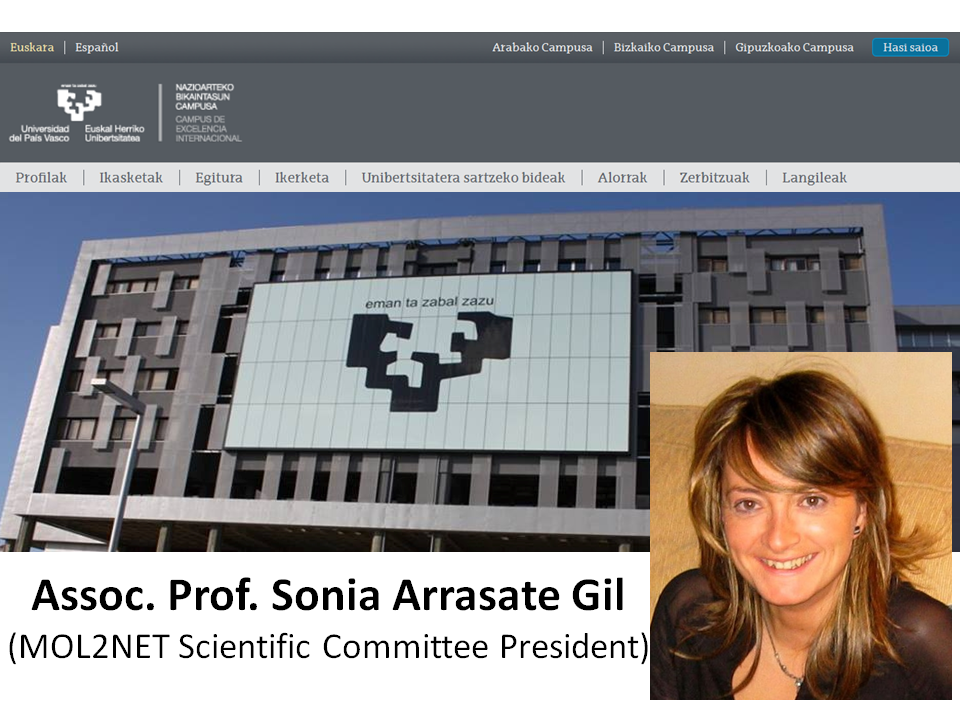 |
Coordinator Scientific Committee (Neurosciences)
Prof. Shira KnafoIKERBASQUE Professor IkerBasque, Basque Foundation for Science, Basque Country, Spain. |
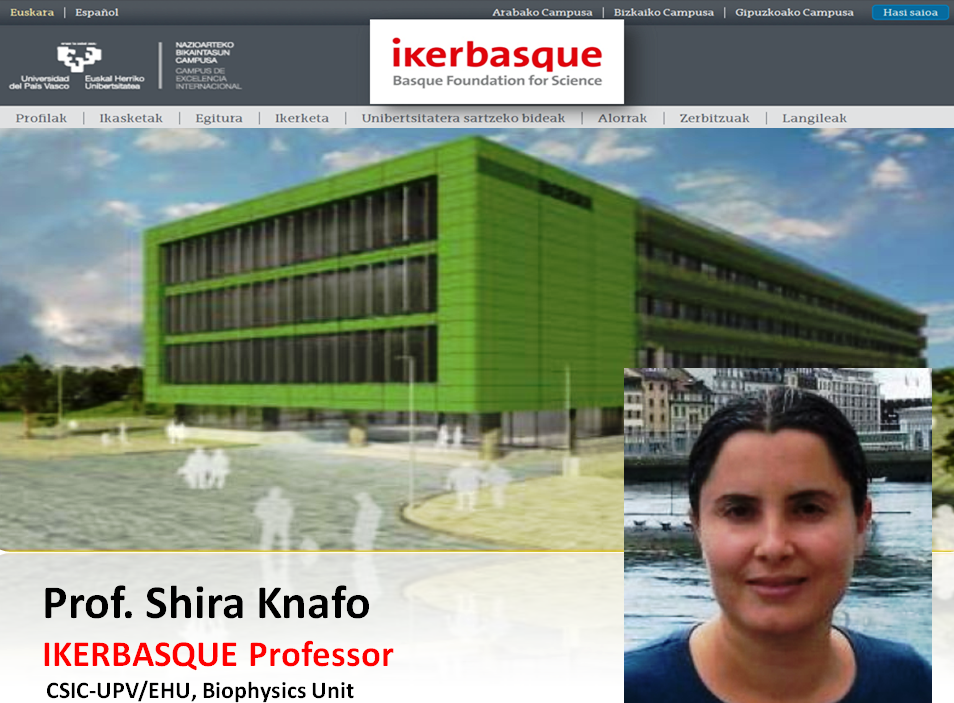 |
Coordinator Scientific Committee (Physical Sciences)
Prof. Juan M. RusoDepartment of Applied Physics, Faculty of Physics, University of Santiago de Compostela (USC), Spain. Email: juanm.ruso@usc.es |
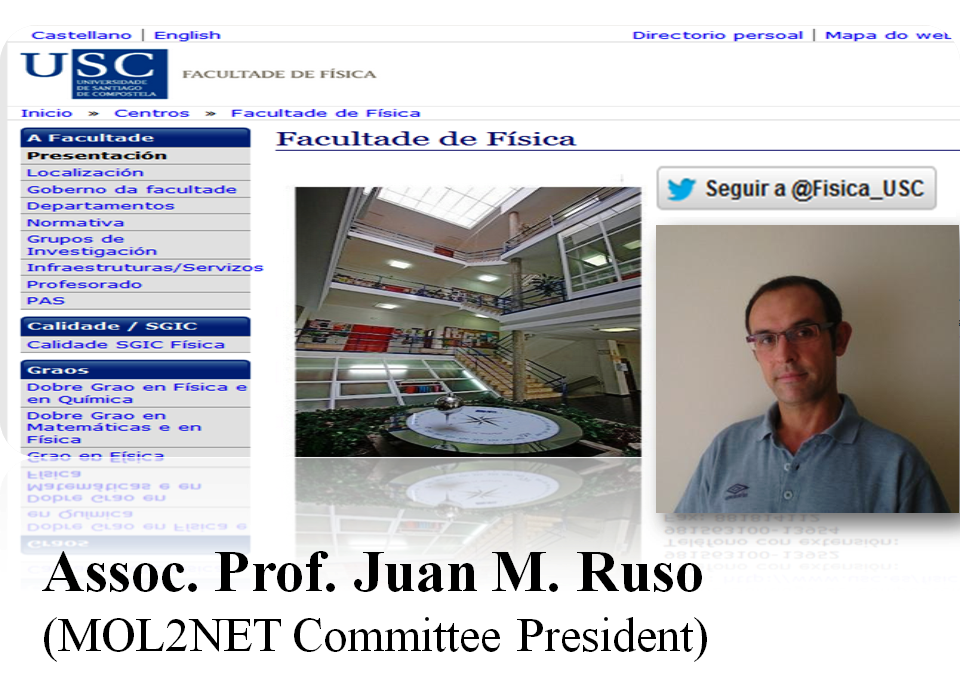 |
Coordinator Scientific Committee (Computer Sciences)
Prof. Cristian R. MunteanuCommunications and Information Technologies, University of Coruña (UDC), A Coruña, Spain. Email: muntisa@gmail.com |
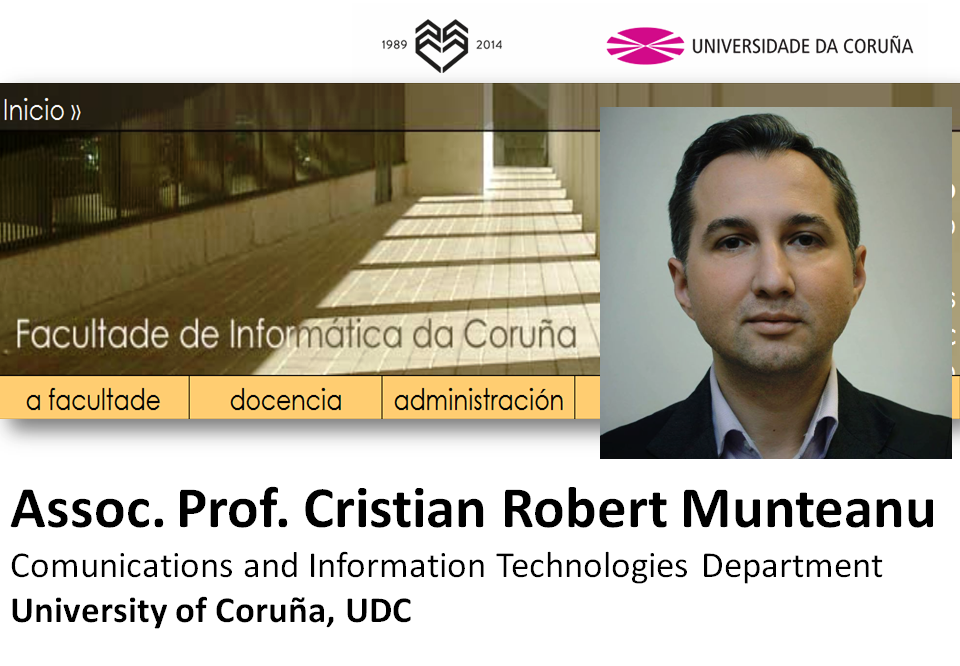 |
[Honor Committee]
[Scientific Committee (Abroad)]
[Scientific Committee (Local)]
Scientific Committee Members (Spain)
University of Santiago de Compostela (USC)
Prof. Eugenio Uriarte Villares, Dept. of Organic Chemistry, USC, Spain.
Prof. Florencio Martínez Ubeira, Dept. of Microbiology and Parasitology, USC, Spain.
Prof. María Isabel Loza, Department of Pharmacology, USC, Spain.
Prof. Ramón J. Estévez Cabanas, Dept. of Organic Chemistry, USC, Spain.
Prof. Julio Seijas Vasquez, Dept. of Organic Chemistry, USC, Spain.
Prof. Carmen Cadarso-Suarez, Dept. Stat. and Operations Research, USC, Spain.
Assoc. Prof. Angeles Sánchez, Dept. of Inorganic Chemistry, USC, Santiago, Spain.
Assoc. Prof. Xerardo García Mera, Department of Organic Chemistry, USC, Spain.
Assoc. Prof. Eddy Sotelo, Dept. of Organic Chemistry, USC, Spain.
University of Vigo (UVIGO)
Prof. Yagamare Fall, Dept. of Organic Chemistry, University of Vigo (UVIGO), Vigo, Spain.
University of Cantabria (UC)
Prof. Jose Angel Irabien Gulias, Dept. of Chemical and Biomolecular Engineering ETSIIT, University of Cantabria, Spain.
University of Barcelona (UB)
Prof. Francesc Illas Riera, Institute of Theoretical and Computational Chemistry (IQTCUB), University of Barcelona, Spain.
Prof. Javier Luque Garriga, Department of Physical Chemistry, Universitat de Barcelona, Barcelona, Spain.
Consejo Nacional de Investigaciones Científicas (CSIC)
Prof. Pilar Goya, Institute of Medicinal Chemistry (IQM), CSIC, Juan de la Cierva st., Madrid, Spain.
Ph.D. Sonsoles Martin-Santamaría, Staff Scientist, CIB-CSIC, Mardid, Spain.
University of Valencia (UV)
Prof. Jorge Gálvez, Dept. of Physical Chemistry, Faculty of Pharmacy, University of Valencia, Spain
Prof. Ramon García Domenech, Dept. of Physical Chemistry, Faculty of Pharmacy, Universitat de Valencia, Spain.
Universidad Politecnica de Madrid
Prof. Victor Maojo, M.D. Ph.D., Biomedical Informatics Group, Polytechnic University of Madrid, Spain.
Universida Complutense de Madrid
Prof. J. Carlos Mendez Ramos, Dept. of Organic Chem. and Pharm. Chem., Complutense University of Madrid, Spain
University of Girona
Prof. Emili Besalú Liora. Institut de Química Computacional i Catàlisi (IQCC), University of Girona, Spain.
University of Alicante
Assoc. Prof. José C. González-Gómez, Dept. of Organic Chemistry, University of Alicante, Alicante, Spain
Institute of Health Carlos III
PhD. Tirso Pons Hernández, Staff Scientist, CNIO, Institute of Health Carlos III, Madrid, Spain.
Scientific Committee Members (UPV/EHU)
UPV/EHU Headquarters Institutional Members
Prof. Carmen Iriondo Gabilondo, Head Dept. of Organic Chemistry II, UPV/EHU, Biscay, Spain.
Prof. Mª Isabel Moreno, Academic Secretary Dept. of Organic Chemistry II, UPV/EHU, Biscay, Spain.
UPV/EHU Committee Members
Prof. Claudio Palomo Nicolau, Director Department of Organic Chemistry I, UPV/EHU, Campus Gipuzkoa
Prof. Francisco Palacios Gambra, Department of Organic Chemistry I, UPV/EHU, Campus Vitoria
Prof. Jose Luis Vicario, Department of Organic Chemistry II, UPV/EHU, Campus Biscay
Prof. M.D. Javier Meana, Department of Pharmacology, Faculty of Medicine, UPV/EHU, Campus Biscay
Prof. Néstor Etxebarria Loizate, Dept. Analytical Chemistry, UPV/EHU, Campus Biscay
Prof. Luis Lezama, Department of Inorganic Chemistry, UPV/EHU, Campus Biscay
Prof. Mario Piris, Ikerbasque Prof., Donostia International Physics Center (DIPC), UPV/EHU, Campus Gipuzkoa
Assoc. Prof. Maria Luisa Carrillo Fernández, Dept. of Organic Chemistry II, UPV/EHU, Campus Biscay
Assist. Prof. Efraim Reyes Martín, Department of Organic Chemistry II, UPV/EHU, Campus Biscay
Assoc. Prof. Inmaculada Arostegui, Dept. of Applied Mathmatics and Statistics, UPV/EHU, Campus Biscay
Assoc. Prof. Aresatz Usobiaga, Department of Analytical Chemistry, UPV/EHU, Campus Biscay
Assoc. Prof. Maite Insausti, Department of Inorganic Chemistry, UPV/EHU, Campus Biscay
Assoc. Prof. Jose Luis Vilas, Department of Physical Chemistry, UPV/EHU, Campus Biscay
Assoc. Prof. Izaskun Gil de Muro, Dept. of Inorganic Chemistry, UPV/EHU, Campus Biscay
Ph.D. Jose Manuel Laza Terroba, Dept. of Physical Chemistry, UPV/EHU, Campus Biscay
Ph.D. Ailette Prieto Sobrino, Dept. of Analytical Chemistry, UPV/EHU, Campus Biscay
Ph.D. Jose Manuel Laza Terroba, Dept. of Physical Chemistry, UPV/EHU, Campus Biscay
Prof. M.D. Marta Arrasate Gil, Adjunct Prof., Faculty of Medicine, UPV/EHU, Campus Biscay
Assoc. Prof. Jose Luis Ayastuy Arizti, Dept. of Chemical Engineering, UPV/EHU, Campus Biscay
Adjunct Prof. Uxue Uria Pujana, Department of Organic Chemistry II, UPV/EHU, Campus Biscay
PhD. Eider Aranzamendi, Department of Organic Chemistry II, UPV/EHU, Campus Biscay
Adjunct Prof. Irantzu Barrio, Ph.D. Department of Applied Mathematics and Statistics, UPV/EHU, Campus Biscay
STEERING COMMITTEE OF CO-CHAIRS
Co-Chairs (Experimental Sciences)
Prof. E. LeteDepartment of Organic Chemistry II, University of Basque Country (UPV/EHU), Leioa, Sarriena w/n, Bizkaia. esther.lete@ehu.eus |
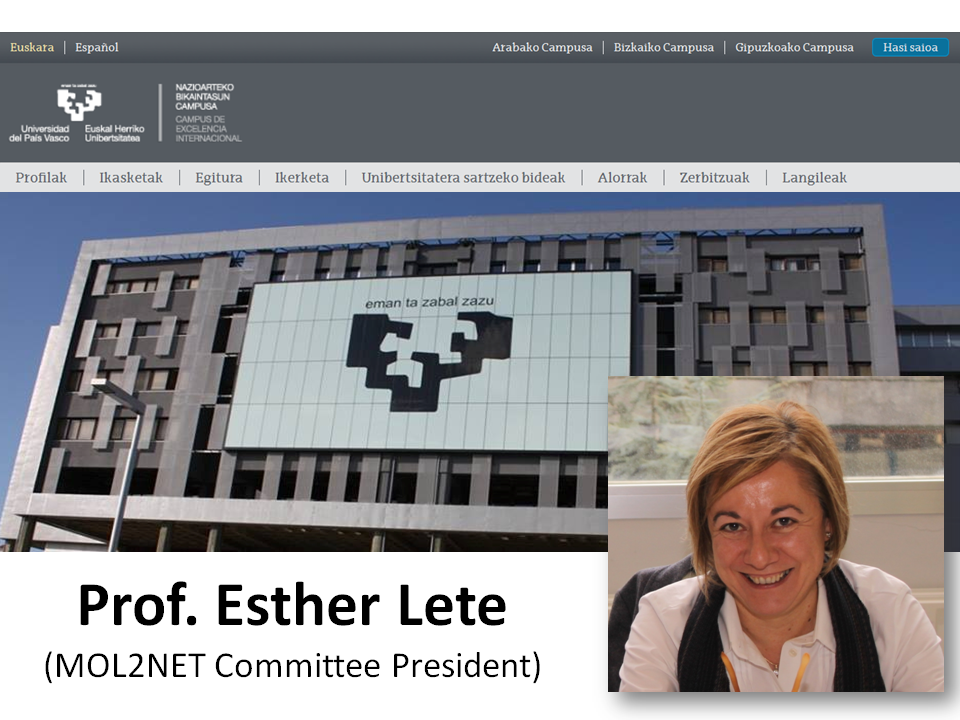 |
Prof. N. SotomayorDepartment of Organic Chemistry II, University of Basque Country (UPV/EHU), Leioa, Sarriena w/n, Bizkaia. nuria.sotomayor@ehu.es |
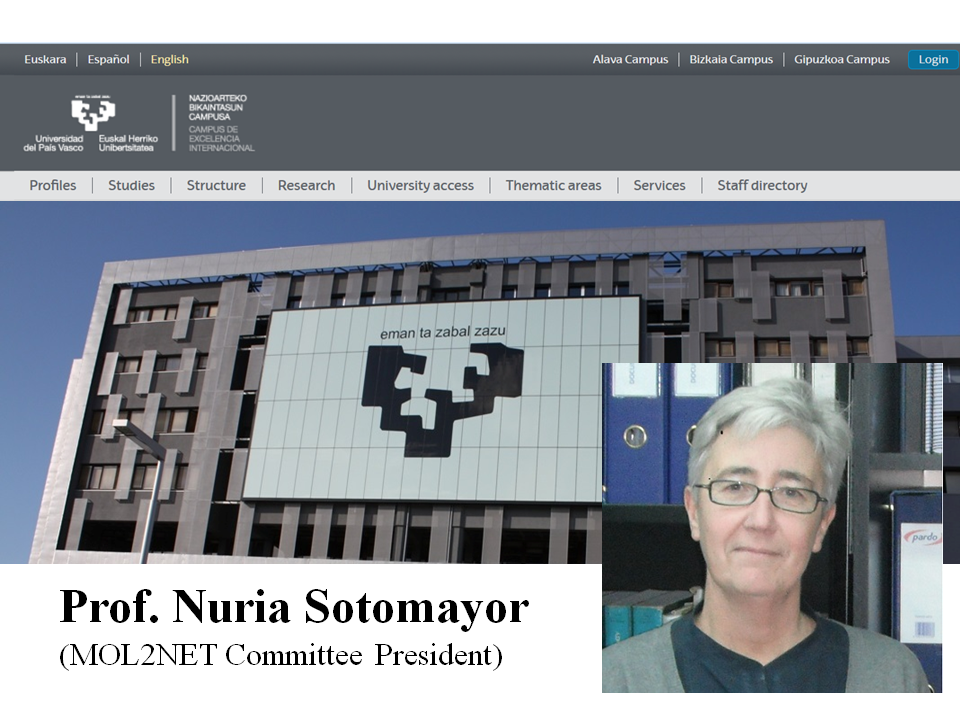 |
Dr. A.B. ReitzPh.D., CEO Fox Chase Chemical Diversity Center, Inc., Doylestown, PA, USA. Moore Fellow in the Management of Technology University of Pennsylvania (Penn Engineering), Editor-in-Chief of Curr Top Medicinal Chemistry, Adjunct Professor at Drexel University College of Medicine, Founder CEO of ALS Biopharma, LLC. |
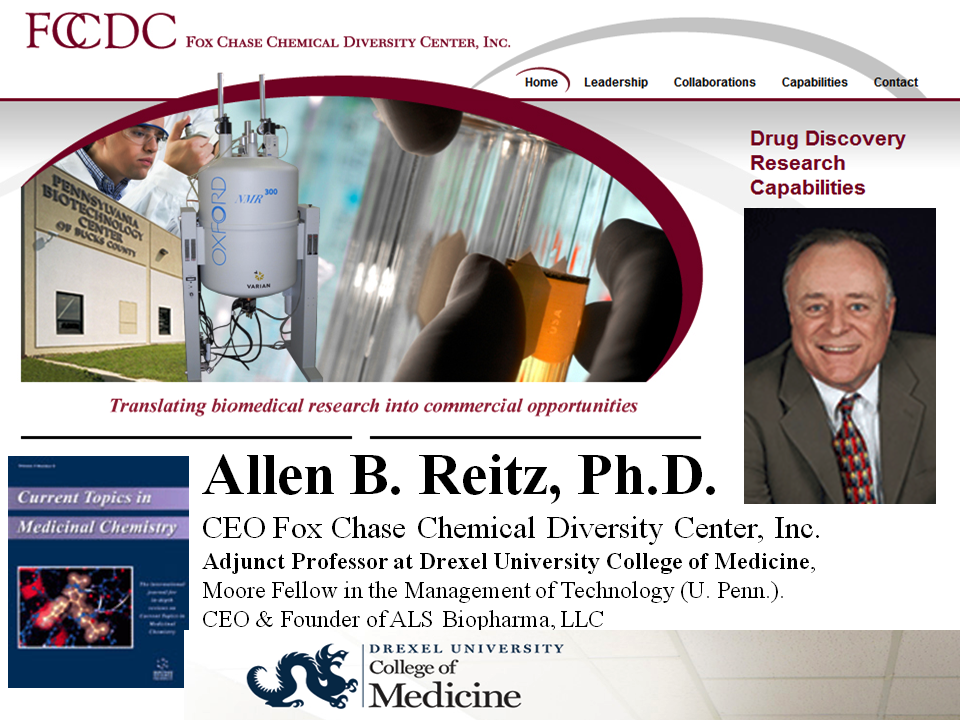 |
Co-Chairs (Theoretical Sciences)
Prof. D. BonchevDirector of Research on Bioinformatics, Center for the Study of Biological Complexity. Prof., Dept of Mathematics & Applied Mathematics, Virginia Commonwealth University (VCU), USA. . |
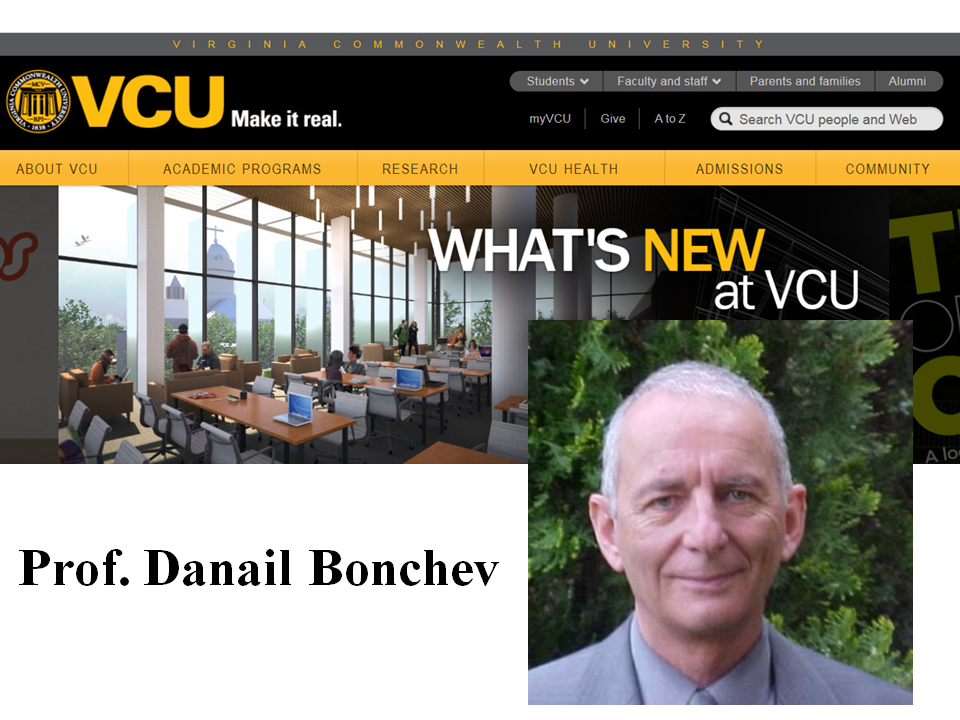 |
Dr. S.C. Basak,(1) Ph.D. Senior Scientist at Natural Resources Research Institute, Center for Water and the Environment (CWE), Duluth, MN, USA
|
 |
Headquarters Institutional Co-Chairs
Prof. F.P. CossíoPresident of IKERBASQUE, Basque Foundation for Science, Prof. Department of Organic Chemistry I, University of Basque Country (UPV/EHU), Donostia - San Sebastián Campus, Gipuzkoa.
|
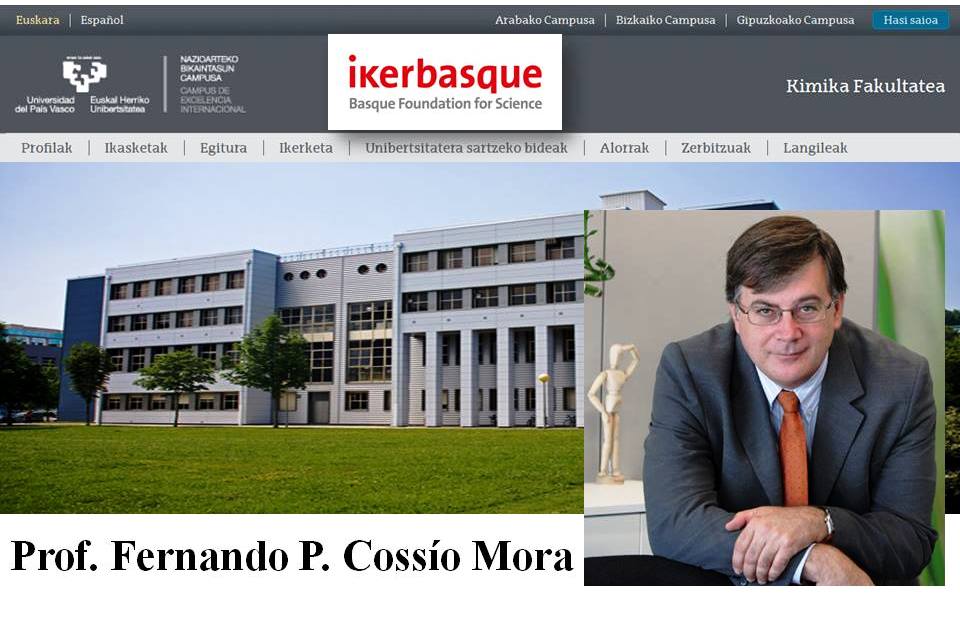 |
Prof. E. Domínguez PérezDean of Faculty of Science and Technology, Department of Organic Chemistry II, University of Basque Country (UPV/EHU), Leioa, Sarriena w/n, Bizkaia.
|
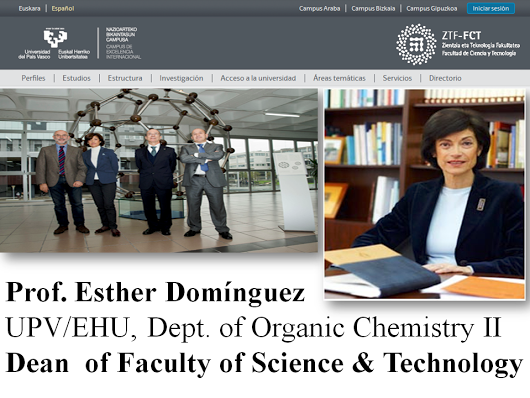 |
Conference Schedule
- Abstract submission: Online Submission system for submission of abstracts shall be open from Jan-20-2016 to Dec-05-2016.
- Paper Submission: Online Submission system for submission of papers shall be open from Jan-20-2016 to Dec-05-2016.
Submission of papers is possible only after receiving the email of acceptation of the abstract.
- Publication of abstracts: Publication of the title, abstract, authors names, affiliations and contact information in the web of the conference will be asap upon acceptation of the abstract, shall be open from Jan-20-2016 to Dec-05-2016, and there after permanently.
- Publication of papers: publication of the post-print version of the full pdf in the web of the conference will be will be asap upon acceptation. After the conference all the information remain published online in open access but commenting will be no longer possible.
- Participation in the conference: Online participation in the conference is possible by posting comments, questions, and/or answers to comments in the Sciforum platform together with the paper, shall be open from Dec-05-2016 to Dec-15-2016. After the conference all the information remain published online in open access but commenting is no longer possible.
- Emission of participation certificates: Participation certificates with logo, information about the conference, etc. to acknowledge type of participation (committee, author, coordinator, and/or assistant) will upon participant request to conference organizers. Certificates will be submitted by email asap after 15 Dec 2016.
*All modalities of participation as committee member, author, section coordinator, and/or assistant are totally free of charges.
Conference Organizers
Prof. Humberto González-Díaz
Ikerbasque Senior Professor, humberto.gonzalezdiaz@ehu.eus
(1) Department of Organic Chemistry II, University of Basque Country / Euskal Herriko Unibertsitatea (UPV/EHU), 48940, Leioa, Sarriena w/n, Bizkaia.
(2) IKERBASQUE - Basque Foundation for Science, 48011, Bilbao, Bizkaia, web: https://www.ikerbasque.net/humberto.gonzalez
List of Keynotes & Videos
MOL2NET (Hindi, हिन्दी) Welcome by M.Sc. M. Hardikar, Eminent Biosciences
Congress Chair
Professor Ihosvany Camps
00. Editorial & Proceedings Book
MOL2NET Chairman Editorial
Conference Chairman
Prof. González-Díaz, H.IKERBASQUE Prof., Ph.D., Pharm.Lic., (1) Department of Organic Chemistry II, University of Basque Country (UPV/EHU), Campus Bizkaia, Basque Country, Spain. (2) IKERBASQUE, Basque Foundation for Science, Bilbao, Bizkaia, Basque Country, Spain. |
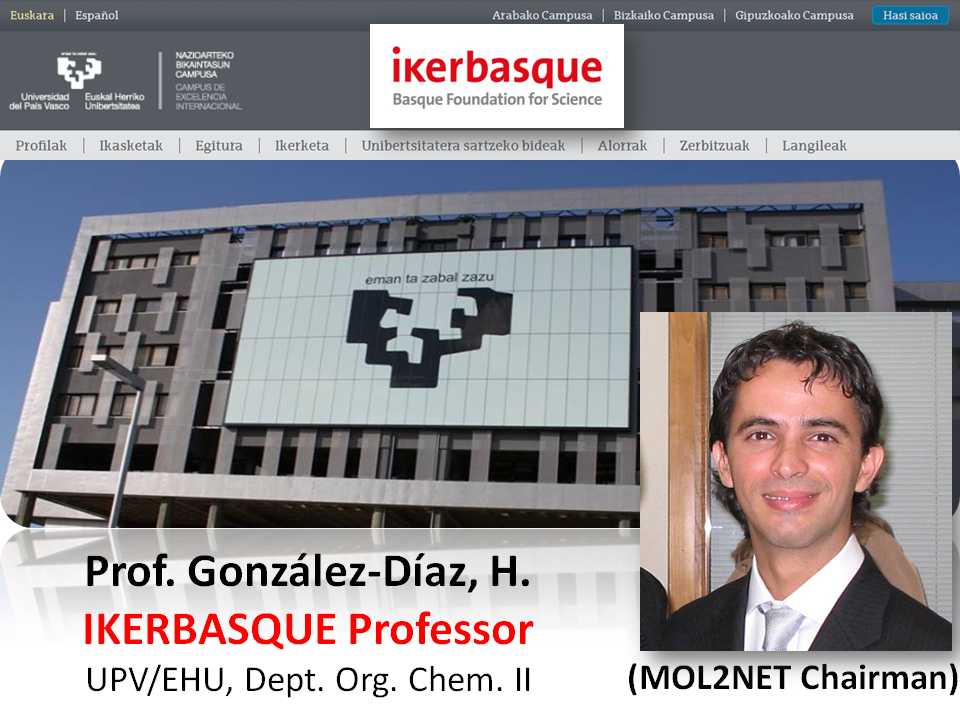 |
Editorial Paper
González-Díaz, H. Editorial: MOL2NET 2016, International Conference Series on Multidisciplinary Sciences.. In Proceedings of the MOL2NET, International Conference on Multidisciplinary Sciences, 5 December 2016–25 January 2017; Sciforum Electronic Conference Series, Vol. 2, 2016 , 00001; doi:10.3390/mol2net-02-00001, https://sciforum.net/conference/mol2net-02/paper/3777
[Honor Committee]
[Scientific Committee (Abroad)]
[Scientific Committee (Local)]
Show all published submissions (3) Hide published submissions (3)
Submissions
List of Papers (3) Toggle list
00. Welcome Videos (English, Chinese, Hindi, Spanish, Portuguese, French, and Euskera)
Welcome Video Presentations
Note: The original Section 04, Healthcare & Clinical Medical Sciences, Biomedical Engineering, and Medical Informatics, was merged into Section 02, https://sciforum.net/conference/mol2net-02/section-02
01. CHEMBIOINFO-02: Chem-Bioinformatics Congress Cambridge, UK-Chapel Hill and Richmond, USA, 2016.

[MOL2NET 2015] [MOL2NET 2016] [MOL2NET 2017] [FACEBOOK (>10K followers)]
[Welcome Videos] [官话] [हिन्दी] [Euskera] [Castellano] [Português] [Français]
CHEMBIOINFO Honor Co-Host Chairpersons
Prof. Alexander Tropsha, Associated Dean UNC Eshelman School of Pharmacy, Associated Editor J. Chem. Info. Model., ACS, USA.
University of North Carolina , Chapel Hill , North Carolina 27599 , USA. Email: alex_tropsha@unc.edu Dr. Subhash C. Basak, Department of Chemistry and Biochemistry, University of Minnesota, Duluth, MN, USA.
Dr. Subhash C. Basak, Department of Chemistry and Biochemistry, University of Minnesota, Duluth, MN, USA.
 Dr. Yasset Perez-Riverol, European Bioinformatics Institute(EMBL-EBI), Cambridge, United Kingdom.
Dr. Yasset Perez-Riverol, European Bioinformatics Institute(EMBL-EBI), Cambridge, United Kingdom.
 Prof. Humbert González-Díaz, IKERBASQUE Professor, Email: mol2net.chair@gmail.com, MOL2NET & USEDAT Founder Chairman
Prof. Humbert González-Díaz, IKERBASQUE Professor, Email: mol2net.chair@gmail.com, MOL2NET & USEDAT Founder Chairman
(1) Dept. of Organic Chemistry II, University of the Basque Country UPV/EHU , 48940, Leioa, Biscay, Spain.
(2) IKERBASQUE, Basque Foundation for Science , 48011, Bilbao, Biscay, Spain.
ORCID: https://orcid.org/0000-0002-9392-2797
MOL2NET CHEMBIOINFO Associated Transversal Workshops
CHEMXEDIT-01 Workshop
CHEMBIONFO-02 is also the online host of the CHEMXEDIT-01, Experimental Chemistry, Education, & Info. Tech. Congress, Bilbao, Spain-Paris, France, 2015. This Inter-University workshop series is co-hosted by the Dept. of Chemistry and Biochemistry, Faculty of Sciences, University of Porto, Porto, Portugal; and the Dept. of Org. and Inorg. Chemistry, University of The Basque Country (UPV/EHU) and IKERBASQUE, Basque Foundation for Science (IKERBASQUE), Bilbao, Basque Country, Spain.
Topics of Interest. This workshop series promotes both experimental and theoretical research in Chemistry including, as well as chemical education, including but not limited to, Inorganic, Analytical, Physical, and Organic Chemistry. The topics are expected to be of wide scope. For instance, in experimental studies: Organic synthesis, Chemical reactivity, Catalysis, Solid State Chemistry, Inorganic Crystals, Crystal Symmetry, and Complexes. Physicochemistry and Analytical chemistry techniques; Spectroscopy (X-Ray, NMR, IR, EPR, Mass Spectroscopy), Chromatography and sample preparation techniques, TEM and SEM Microscopy. Also, in theoretical and computational studies: Computational Chemistry, Quantum Mechanics (Ab inition, DFT, MP3, AM1 methods), Monte Carlo (MC) algorithm, Quantitative Structure-Reactivity, Structure-Property, or Structure-Retention Relationships (QSPR/QSRR) models in organic, inorganic, physical and analytical chemistry. Chemometrics, Experimental Design, and Data Analysis in Analytical chemistry.
CHEMXEDIT Scientific Committee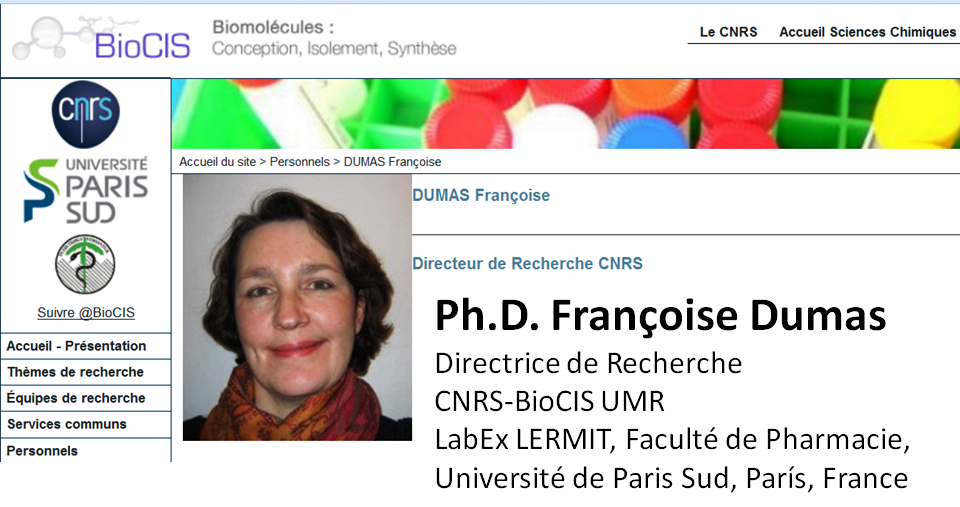 Prof. Françoise Dumas, CNRS, Directrice de Recherche, Prof. Université Paris-Saclay, Paris, France .
Prof. Françoise Dumas, CNRS, Directrice de Recherche, Prof. Université Paris-Saclay, Paris, France .

Prof. Maité Sylla, Assoc., Chimie Molécularie, Conservatoire National des Arts et Métiers CNAM, París, France.
WCUCW Workshop
CHEMBIOINFO-02 is also the online host of the WCUCW-01, West Coast University Capstone Workshop, Miami, FL, USA. This is the Capstone workshop for West Coast University (WCU), Miami, FL, USA. This workshop series held each academic term is devoted to fostering both education and research in multidisciplinary sciences. Nursing students completing their General Education courses at WCU form groups of three and take on the roles of scientist, medical researcher, or public health professional, all of them approaching an assigned topic from their field of expertise. They are each required to devise a study on their topic, pretend to conduct it, generate logical data to support a hypothesis, write an academic paper sharing their findings, and defend their data in a presentation.The workshop education goals focus on professors and students in the WCU Miami campus Capstone course. However, we also welcome researchers and students from other nationwide WCU campuses and researchers from other institutions around the world.
WCUCW Chairperson
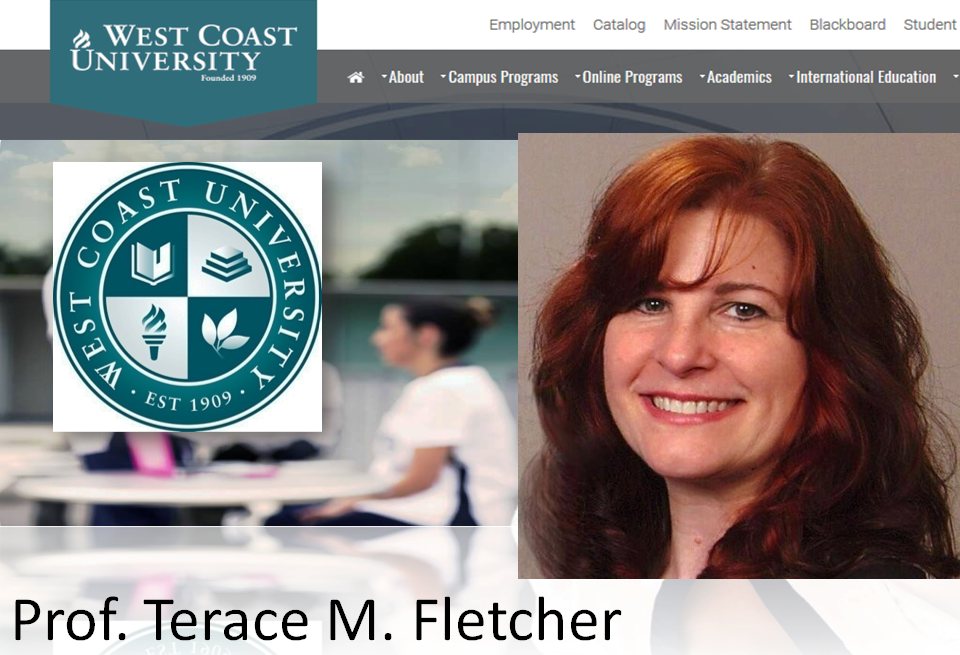
Prof. Terace Fletcher, PhD, MS, Email: teFletcher@westcoastuniversity.edu
Academic Dean and Professor, West Coast University, Miami Campus, FL, USA.
Prof. Melissa Cueto, Email: meCueto@westcoastuniversity.edu
MAInstructor II, West Coast University, Miami, FL, USA
Adjunct Prof., University of Miami, Coral Gables, FL, USA.
Prof. Maykel Cruz-Monteagudo, West Coast University, Miami Campus, FL, USA.
Prof. Lazaro Pino, Assoc. Prof., West Coast University (WCU) and, Miami Dade College (MDC), Miami, FL, USA.
Prof. Sonia Arrasate, Department of Organic Chemistry II, University of Basque Country (UPV/EHU), Basque Country, Spain.
Prof. Natalia D.S. Cordeiro, Dept. of Chemistry and Biochemistry, Faculty of Sciences, University of Porto, Porto, Portugal.
CBSM Workshop
Prof. Wendy Gonzalez, Dir., Cent. Bioinfo., Simul. & Model. (CBSM), Univ. of Talca, Talca, Chile.
Prof. Gabriel Nuñez, Cent. Bioinfo., Simul. & Model. (CBSM), Univ. of Talca, Talca, Chile.
Prof. Julio Caballero, Cent. Bioinfo., Simul. & Model. (CBSM), Univ. of Talca, Talca, Chile.
Committee
Hector Urbina, Cent. Bioinfo., Simul. & Model. (CBSM), Univ. of Talca, Talca, Chile.
Marcelo Rojas, Cent. Bioinfo., Simul. & Model. (CBSM), Univ. of Talca, Talca, Chile.
Secretariat: Claudia González, Cent. Bioinfo., Simul. & Model. (CBSM), Univ. of Talca, Talca, Chile.
TI support: Fabio Duran, , Cent. Bioinfo., Simul. & Model. (CBSM), Univ. of Talca, Talca, Chile.
Dr. Samuel Ortega-Farías, Universidad de Talca
Dr. Vinicius Maracaja-Coutinho, Universidad Mayor
Dra. Gabriela Repetto, Clinica Alemana.
Ing. Marcelo Rojas, BeagleBioinformatics
Dr. Cesar Astudillo, Universidad de Talca
Ing. Mg. Aucan Pedroso Rovira, Independiente
Ing. Constanza Campano, Instituto de Salud Pública
Ing. Dr(c) Raul Arias, Universidad Mayor
Flyer Video: [link], Audio: Spanish min 00:00, English min 02:45
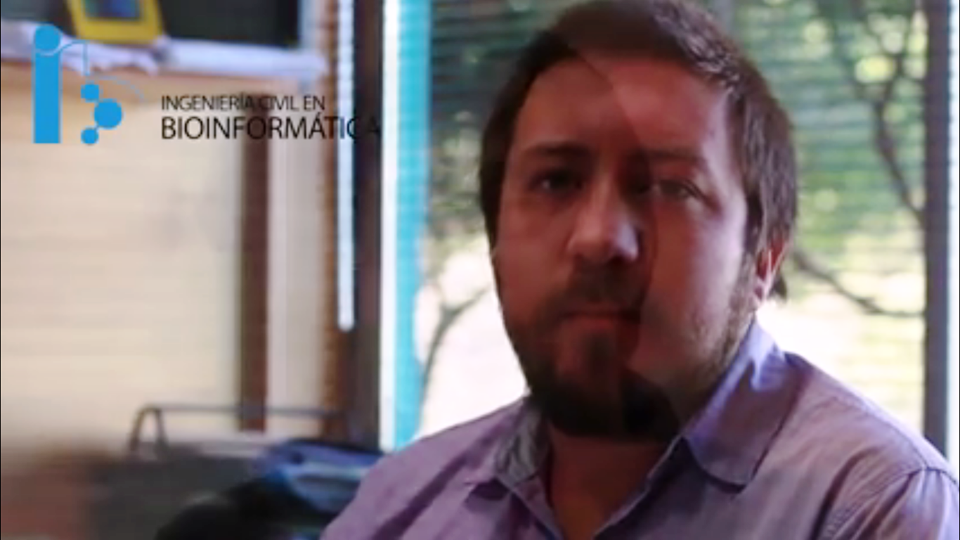
CHEMBIOINFO Advisory Publication Chair
Prof. Humbert G. Díaz, IKERBASQUE Professor, Email: mol2net.chair@gmail.com
(1) Department of Organic Chemistry II and Basque Center for Biophysics, University of the Basque Country UPV/EHU , 48940, Leioa, Biscay, Basque Country, Spain. (2) IKERBASQUE, Basque Foundation for Science , 48011, Bilbao, Biscay, Basque Country, Spain.
ORCID: https://orcid.org/0000-0002-9392-2797
CHEMBIOINFO ICTs & Regulatory Affairs Chairperson
Dr. Aliuska Duardo-Sanchez (Law.Lic., Ph.D. TICs & Legal Sciences)
PANELFIT European Commission Project Manager. Research Group: Chair in Law and The Human Genome,
Dept. of Public Law, University of Basque Country (UPV/EHU), Campus Biscay, Leioa 48940, Spain.
Congress Chairs
Professor Esther Lete
Professor Nuria Sotomayor
Professor Sonia Arrasate Gil
Show all published submissions (28) Hide published submissions (28)
Submissions
List of Papers (28) Toggle list
02. CHEMBIOMOL-02: Chem. Biol. & Med. Chem. Workshop, Rostock, Germany-Bilbao, Spain-Galveston, Texas, USA, 2016
Experimental Sciences Topics: CHEMBIOMOL series focus on experimental research on the frontiers of Biomolecular and Biomedical Sciences including: Organic Chemistry, Organic Synthesis, Medicinal Chemistry, Chemical Biology, Molecular Pharmacology, Toxicology, Biotechnology, Biomedical Engineering, Systems Biology, etc. This includes spectroscopic structural characterization (NMR, X-Ray, IR, MS, etc.), Organic synthesis, Biological Assays, Proteomics, Protein Structure, Biophysics, Genomics, Toxicity tests, etc.
Computational Sciences Topics: In addition, the workshop also deals with the application of new Information and Communication Technologies (ICTs) in the previous experimental areas. This includes, Chemoinformatics, Bioinformatics, Data Analysis, Statistics, Artificial Intelligence, Deep Learning, Programming, Databases, Complex Network Analysis of Biosystems, Complexity in Biosystems, Multiscale Systems, Chemical Computation, Theoretical Biology, etc.
Bioethics & Regulatory Topics: Last, not the least, the workshop deals with all the Legal, Regulatory, and Bioethics issues emerging from use of new experimental and ICTs in the previous areas such as Drug Patenting, Drug re-purposing patents, Proteome and Genome patentability, Synthetic Biology, Modified Organisms, Biomedical Personal Image Processing, Personal Data Protection, Personalized Medicine, Software and Models Copyrights, etc.
(5) Follow the link in the email or login to upload paper (doc and pdf format).
(6) Login to post comments, questions, or answers in a section or in one of the MOL2NET workshops.

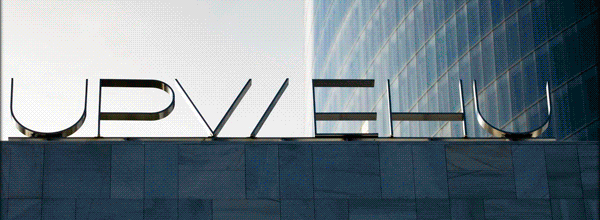
1st Young Scientist Workshop UFI-QOSYC
CHEMBIOMOL'16 the host congress of the UFI QOSYC workshop for young researchers. The UFIs are Training and Research Units (TRUs), or in Spanish UFIs - Unidades de Formación e Investigación, formed by different Departments of the University of Basque Country UPV/EHU. The UFI QOSYC is the Organic Chemistry, Synthesis and Catalysis unit devoted to developing new procedures for chemical synthesis and catalysis and their application to the preparation of molecules of biological and industrial use. The "1st Workshop for Young Scientists – UFI QOSYC" will bring together early career researchers (postdocs and graduate students) from the area of organic chemistry and catalysis across the UFI QOSYC to exchange information and practice presenting their research work in a supportive scientific environment. This event will showcase the high value that young researchers bring to UFI QOSYC through their research accomplishments and provide them an opportunity to explore potential research collaborations in the University of the Basque Country UPV/EHU. Besides, it offers an excellent platform to demonstrate UFI QOSYC research activities to external audiences.
CHEMBIOMOL Honour Committee
 Prof. Jia Zhou, Department of Pharmacology and Toxicology, University of Texas Medical Branch, Galveston, TX, USA.
Prof. Jia Zhou, Department of Pharmacology and Toxicology, University of Texas Medical Branch, Galveston, TX, USA.
(EIC Current Topics in Medicinal Chemistry)
ERASMUS+ Co-Host Academic Pursuit Chairpersons


(Coordinator Ph.D. Synth. & Ind. Chemistry)

Prof. Nuria Sotomayor, Dept. Org. & Inorg. Chem., University of Basque Country (UPV/EHU), Basque Country, Spain.
CHEMBIOMOL UFI-QOSYC Workshop Chairpersons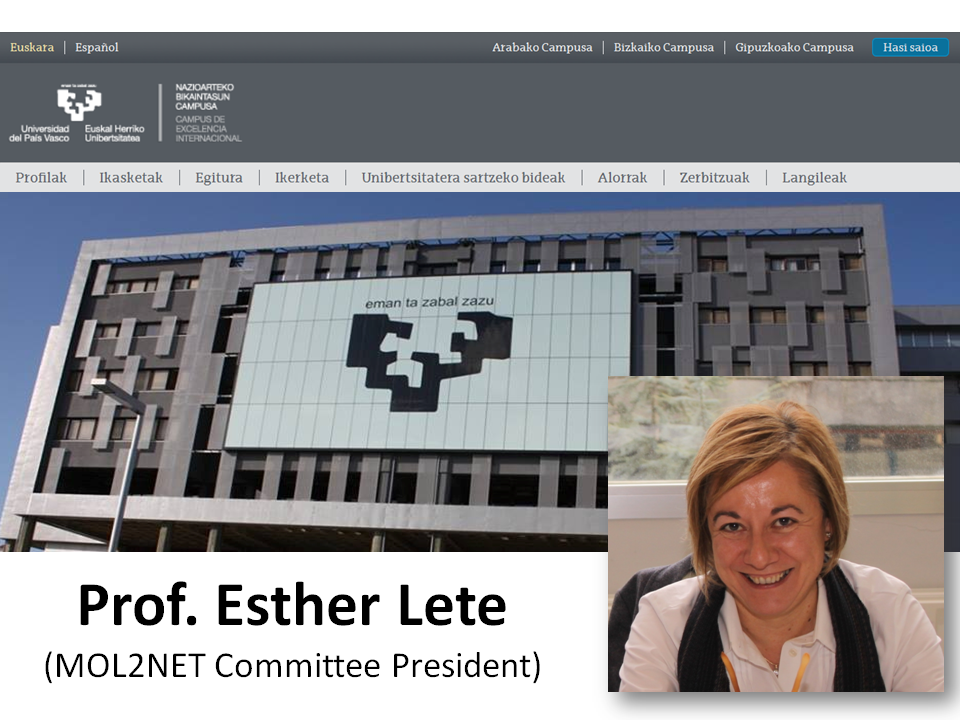
Prof. Esther Lete, Department of Organic Chemistry II, University of Basque Country (UPV/EHU), Leioa, Sarriena w/n, Bizkaia.
(Chairperson Session I)
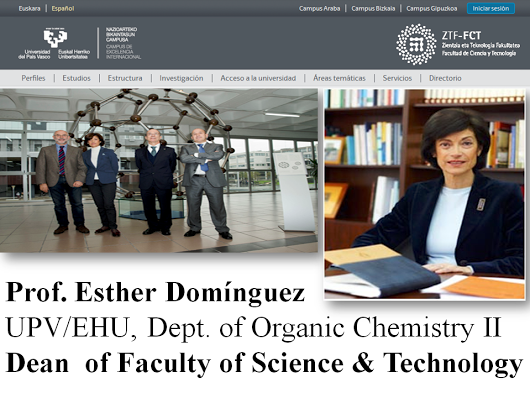 Prof. Esther Domínguez Pérez, Dean of Faculty of Science and Technology, Department of Organic Chemistry II, University of Basque Country (UPV/EHU), Leioa, Sarriena w/n, Bizkaia. (Chairperson Session II)
Prof. Esther Domínguez Pérez, Dean of Faculty of Science and Technology, Department of Organic Chemistry II, University of Basque Country (UPV/EHU), Leioa, Sarriena w/n, Bizkaia. (Chairperson Session II)
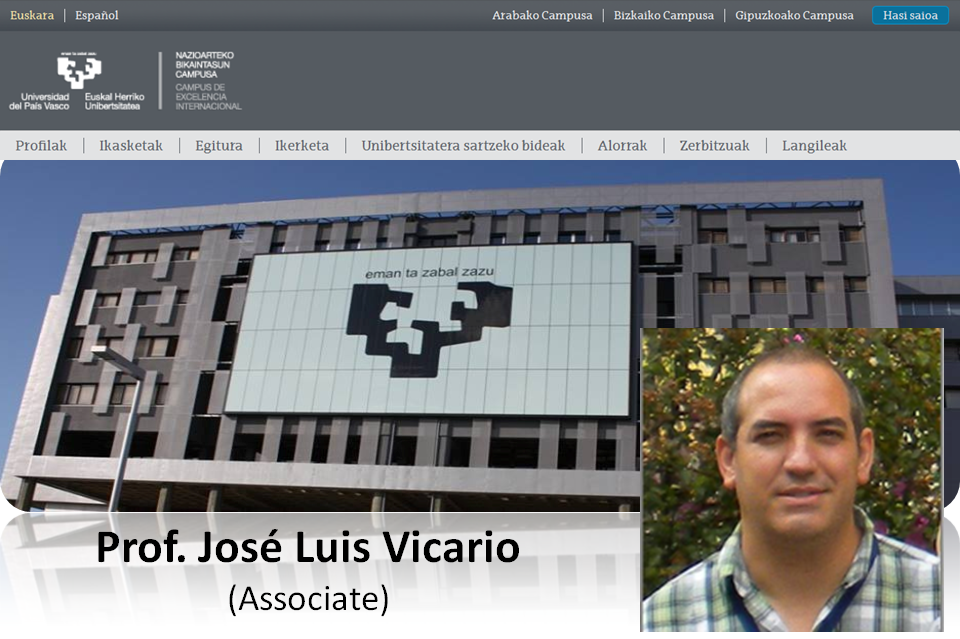 Prof. Jose Luis Vicario, Department of Organic Chemistry II, University of Basque Country (UPV/EHU), Leioa, Sarriena w/n, Bizkaia. (Chairperson Session III
Prof. Jose Luis Vicario, Department of Organic Chemistry II, University of Basque Country (UPV/EHU), Leioa, Sarriena w/n, Bizkaia. (Chairperson Session III
UFI-QOSYC Council*
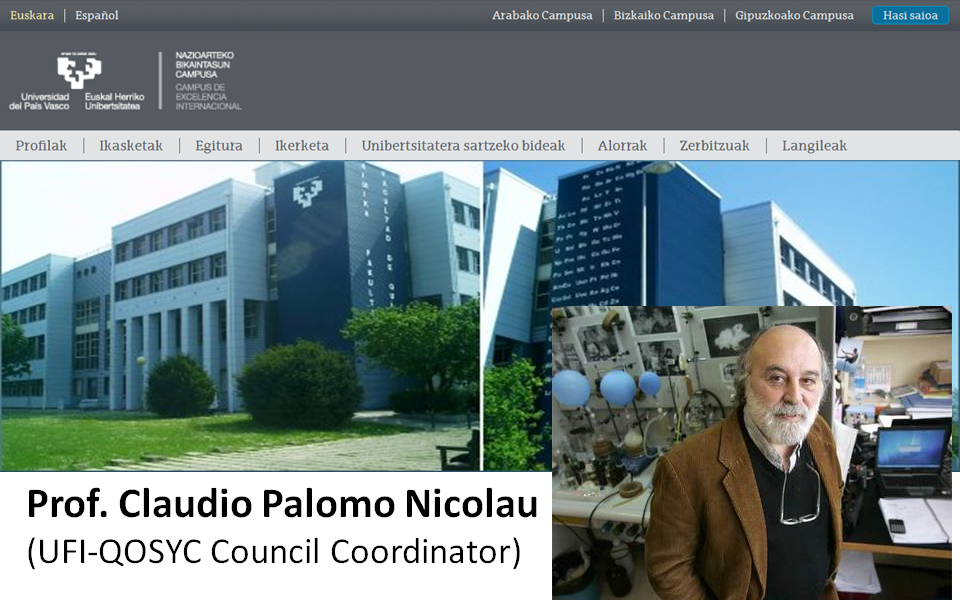
Prof. Claudio Palomo Nicolau, Director Department of Organic Chemistry I, University of Basque Country (UPV/EHU), Donostia - San Sebastián Campus, Gipuzkoa. (UFI-QOSYC Council Coordinator)
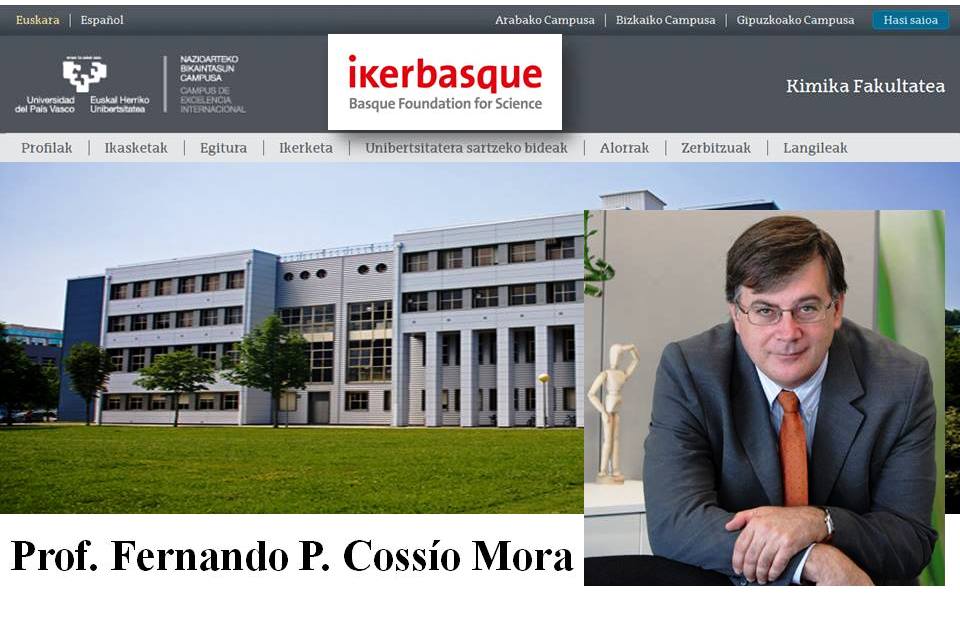
Prof. Fernando P. Cossío, President of IKERBASQUE, Basque Foundation for Science, Prof. Department of Organic Chemistry I, University of Basque Country (UPV/EHU), Donostia - San Sebastián Campus, Gipuzkoa.
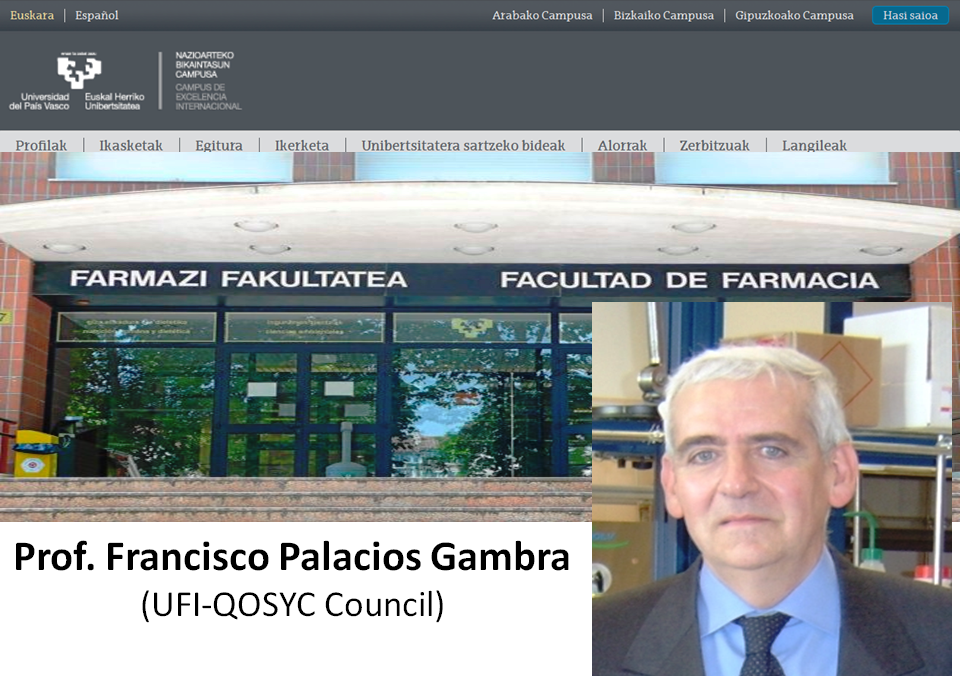
Prof. Francisco Palacios Gambra, Prof. Department of Organic Chemistry I, Faculty of Pharmacy / Farmazi Fakultatea, University of Basque Country (UPV/EHU), Álava Campus, Vitoria-Gasteiz.
*Professors Esther Domínguez, Esther Lete, and Jose Juis Vicario are also members of the council.
Prof. Yagamare Fall, Dept. of Organic Chemistry, University of Vigo (UVIGO), Vigo, Spain.
Prof. Generosa Gómez, Dept. of Organic Chemistry, University of Vigo (UVIGO), Vigo, Spain.
ERASMUS+ UROSTOCK-UPVEHU Organic Chemistry Academic Agreement coordinator.
(1) Department of Organic Chemistry II and Basque Center for Biophysics (CSIC-UPV/EHU),
(2) IKERBASQUE, Basque Foundation for Science , 48011, Bilbao, Basque Country, Spain.
CHEMBIOMOL ICTs & Regulatory Affairs Chairperson
Dr. Aliuska Duardo-Sanchez (Law.Lic., Ph.D. TICs & Legal Sciences)
PANELFIT European Commission Project Manager. Research Group: Chair in Law and The Human Genome,
Dept. of Public Law, University of Basque Country (UPV/EHU), Campus Biscay, Leioa 48940, , Basque Country, Spain.
03. USEDAT-02: USA-Europe Data Analysis Training Program Workshop, Cambridge, UK-Bilbao, Spain-Miami, USA, 2016

The program is directed to researchers and students worldwide. The initiative joins various sister summer schools, workshops, boot camps, hands-on training courses, and/or capstone courses of universities in United States and Europe. This includes courses and research workshops offered/chaired by professors of Miami Dade College (MDC), University of North Carolina at Chapel Hill (UNC), North Dakota State University (NDSU), Jackson State University (JSU), Tulane University New Orleans, Saint Thomas University (STU), and West Coast University (WCU) Miami, in United States and courses/workshops organized by professors / researchers of University of Coruña (UDC) Spain, EMBL-EBI European Bioinformatics Institute, Cambridge, United Kingdom, CNAM, Conservatoire National des Arts et Métiers, Paris, France, University of the Basque Country (UPV/EHU) and Ikerbasque, Basque Foundation for Science, Basque Country, Spain, and other European centers.
USEDAT Program Enrollment. Enrollment is free of cost (no fees) for USEDAT hands-on training courses, this include training of Summer school students, training/tutoring of PhD, MSc, and Degree students, training of visiting professors, post-doctoral researchers, sabbatical professors, etc. However, USEDAT students/professors obtain financial support to cover indirect costs (traveling, insurance, living, and other indirect costs) from institutions like MSCA Europe Commission, EMBL-EBI United Kingdom, FCT Portugal, NSF China, COLCIENCIAS Colombia, SENESCYT Ecuador, CONACYT, DELFIN Program México, and PANELFIT H2020 Europe Commision Projects, etc. Follow this link [MORE USEDAT PROGRAM DETAILS] to read more details about USEDAT program.
MOL2NET USEDAT Associated Transversal Workshops

SRI-08: The 8th Annual Symposium of Summer Research Institute, Saint Thomas University, September 16th, 2016
Dear colleagues we welcome you to the symposium of the Summer Research Institute (SRI) with Head Quarters (HQ) at Saint Thomas University (STU), and supported by Miami Dade College (MDC), Miami, Downtown, FL, USA . This is face-to-face (in person) workshop associated to and hosted online by MOL2NET-2, International Conference of Multidisciplinary Sciences, 2016, MDPI, Sciforum, Basel, Switzerland, with HQs, University of The Basque Country (UPV/EHU), and supported by IKERBASQUE, Basque Foundation for Science, Basque Country, Bilbao, Spain.
Welcome Message from Chairman
Eight years have passed since the First Annual Undergraduate Summer Research Symposium. Over this period of time, the School of Science, Technology, and Engineering Management of Saint Thomas University (STU) in partnership with Miami Dade College (MDC) and with the continuous support of the faculty and staff has provided an excellent internship program to our students and those coming from our partner’s institutions. From the start the Carnival Cruise Lines Science and Technology Building focused on the hands-on research experience. This places our students in an excellent position to gain entrance into graduate, or professional Schools, or to directly enter the workforce in South Florida. Most students in other institutions do not have this research opportunity until they reach graduate school.
The faculty and staff of the School of Science are committed to providing a quality education in the sciences and offer the unique opportunity to talented undergraduate students, to experience hands-on research in ten research laboratories alongside their professors. In addition, the Summer Research Institute (SRI) has enhanced the instrumentation capacity of our institution. Such improvements have allowed deepening our research projects as well as to establish new alliances in research and development. Results from our projects already circulate in local, national and international conferences, augmenting this way the visibility of the institution and the pride that students might have for their faculty and work accomplished. The eight edition of the SRI offered a continuous lecture series “Moving into the Future” on a weekly basis. Ten speakers from University of Miami, Florida International University, and local Technological companies came to St. Thomas to share their wisdom as an in kind contribution.
This year, the memories of the Annual Symposium will be published online in the open source forum MOL2NET of Sciforum platform. All presentations will be peer reviewed and a DOI number will be assigned. MOL2NET conference of Sciforum is one of the platforms internationally recognized for scientific exchange. This annual edition is full of diversity in topics, approaches, and integration of disciplines, representing one of the common paradigms of modern science, inter-disciplinarity, teamwork and networking. I hope you will enjoy the program and the presentations.
Special thanks to our sponsors, Miami Dade College, STEM-TRAC grant, St. Thomas School of Science, Technology, and Engineering Management, Yager Foundation, Monet Coiffure, In Fashion Forever, and Physics & Mathematics Solutions, who provided funding for major and minor activities associated with the 2016 edition. Follow the link to download and/or read the full program [SRI08 Program]
Program Overview
8:00 – 9:00 Registration and Poster Setup. Judges meet in room CCL 111
9:00 – 9:05 Invocation by Rev. Alfred Cioffi
9:05 – 9:20 Opening Comments by Dr. Adrienne Vynne, Dean of School of STEM
9:20 – 9:35 Opening Comments by Dr. Irma Becerra, Provost of St. Thomas
University
9:35 – 9:45 Session Introduction by Dr. David Quesada, Coordinator SRI 2016
9:45 – 10:00 Oral Presentation 1
10:00 – 10:15 Oral Presentation 2
10:15 – 10:30 Oral Presentation 3
10:30 – 10:55 Break
11:00 – 11:15 Oral Presentation 4
11:15 – 11:30 Oral Presentation 5
11:30 – 11:45 Oral Presentation 6
12:00 – 13:00 Lunch Break courtesy of the School of STEM
13:00 – 15:00 Poster Session
15:00 – 15:30 Judges meet in CCL 111 to choose the awards
15:30 – 15:45 Announcement of Awards
Submission Notes
This workshop is planned to be held on Sept, 2016. However, the submission is open and the publication of communications will be ASAP after acceptance, all the year. To submit a communication use the Submission link. After you successfully register, you can submit your paper online. You need to register and send your abstract first. After abstract approval you need to send your communication. Firstly, you need to submit only the title, authors, and short abstract. Secondly, you could submit your full work in .doc and .pdf format after receiving the approval email from the chairperson. Please, download and use the following .doc file as [SRI08 2016 Official Template] to submit your work. For more details contact the Chairman of the workshop. Be aware: on step 1, you should select MOL2NET 2016, International Conference on Multidisciplinary Sciences, 2nd edition (Conference), on step 2, you should select SRI08: Saint Thomas University Research Experience for Undergraduates, Miami, 2016.
Symposium Committee
SRI-08 Chairperson: Prof. David Quezada, Associate Professor of Physics, Email: dquesada@stu.edu
Saint Thomas University (STU), Carnival Building, Room 115, Miami, FL, USA. (MOL2NET Honor Committee)
SRI-08 Advisory Chairman: Prof. Humberto González-Díaz, IKERBASQUE Prof., Ph.D., Email: humberto.gonzalezdiaz@ehu.eus
(1) Department of Organic Chemistry II, University of Basque Country (UPV/EHU), Campus Bizkaia, Basque Country, Spain.
(2) IKERBASQUE, Basque Foundation for Science, Bilbao, Bizkaia, Basque Country, Spain.
(MOL2NET Conference Chairman).
Workshop Photo gallery
See a photo gallery with pictures of the participants posted by the chairperson of the workshop on a Facebook [Album].
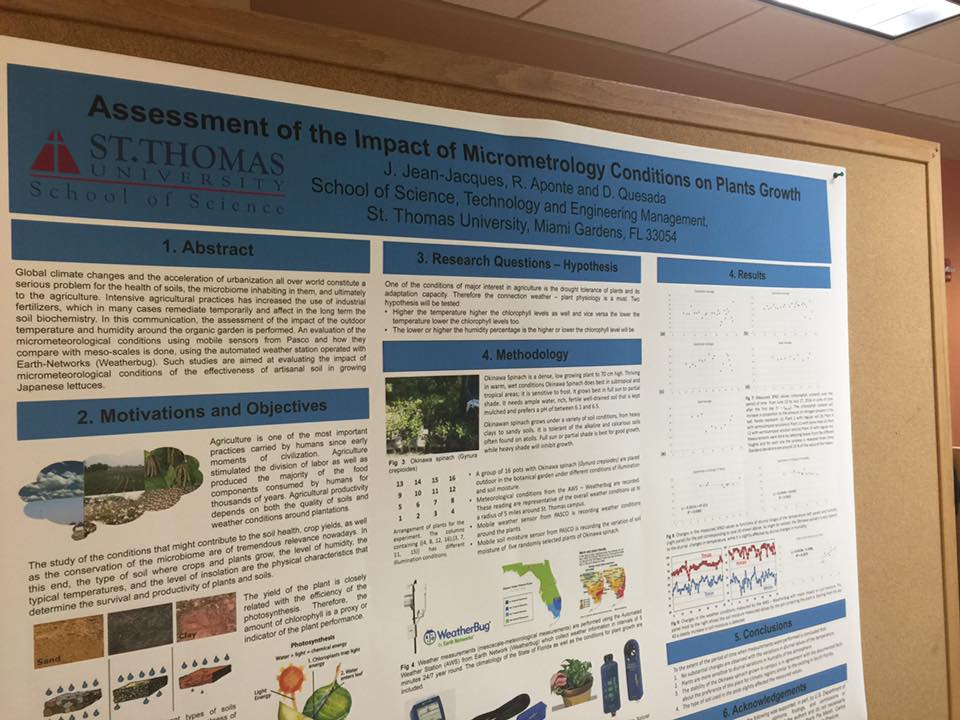

USEDAT-02 also published the works presented at SUIWML2016: Soochow University International Workshop Series on Machine Learning and its Applications in Biomedicine. This is one scientific conference series of the School of Computer Science and Technology of Soochow University, PCR, China. This workshop focus on Machine Learning. Machine learning is the most growing branch of computer science, driven by the ongoing explosion in the availability of data. Machine learning evolved from artificial intelligence and deals with many different problems and aspects to solve various tasks, including knowledge discovery, data mining, decision support and etc. A grand challenge is to discover relevant structural patterns and/or temporal patterns in complex data, which are often hidden and not accessible to the human expert. SUIWML Committee: Prof. Quan Liu, Dir. Dept. of Software Engineering, Soochow University (SUDA), Suzhou, China, Prof. Fangzhang Li, Dean School of Computer Sciences and Technology, Soochow University (SUDA), Suzhou, China, Prof. Bairong Shen, Dir. Center of Complex Systems, University of Soochow (SUDA), PRC, China. Prof. Xiaoke Zhou, Assist. School of Computer Sciences and Technology, Soochow University (SUDA), Suzhou, China.
USEDAT Lecturers and Collaborating Professors
People listed as collaborators and/or collaborating professors of the USEDAT school project are those who have: [i] acted as lecturer or coordinator of one of the courses; [ii] Acted as chairperson of one of the workshops, [iii] offered institutional and/or hosting support, [iv] acted as tutor and/or have sent at least one student to participate in courses of other centers.
Professors/Collaborators [North America]:
Prof. Eugene Muratov i,ii, Eshelman School of Pharm., Univ. of North Carolina (UNC), Chapell Hill, USA.
Assist. Prof. Matthew M. Montemore i,iii,iv, Chem. & Biomol. Eng., Tulane University, New Orleans, USA.
Prof. James Robert Green i,ii,iii,iv, Dept. of Systems and Comput. Eng., Carleton University, Canada.
Prof. Terace Fletcher i,ii,iii,iv, Northeast Lakeview College, University of Texas, San Antonio, TX, USA.
USEDAT Professors/Collaborators [Europe]:
Prof. Humbert Gonzalez-Diaz (USEDAT Coord.)i,ii,iii,iv , Prof. Sonia Arrasate i,ii,iii,iv, Prof. Esther Lete (PhD Coord.)i,ii,iii,
Prof. Nuria Sotomayor (MSc Coord.)i,ii,iii, Prof. Fernando Plazaola (Dean)iii, Prof. Ma. Isabel Moreno (Dir. Dept.)ii,iii,
Dr. Aliuska Duardo (Fac. Law)i,ii,iii,iv, Univ. of The Basque Country (UPV/EHU), Leioa, Basque Country, Spain.
Prof. Cristian R Munteanu i,ii,iii,iv, Prof. Alejandro Pazos i,ii,iii,iv, University of Coruña (UDC), Coruña, Spain.
Dr. Yasset Perez-Riverol i,ii, European Bioinformatics Institute (EMBL-EBI), Cambridge, United Kingdom.
Prof. Pedro L. Fernandes i,ii,iii,iv, Bioinformatics Training Coordinator, Instituto Gulbenkian de Ciencia (IGC), Portugal.
Prof. Amaury Pérez Martínezii,iii, Amazon State Univ. (UEA), Ecuador.
Prof. Eduardo Tejera i,ii,iii,iv, Prof. Yunierkis Perez Castillo i,ii,iii,iv (Bio-Cheminformatics Group), Prof. Vinicio Armijos iii,iv,
MSc. Emilia Vasquez i,ii,iii,iv (Biotechnology), Universidad de Las Americas (UDLA), Quito, Ecuador.
Prof. Marcus T Scotti i,ii,iii, Dir. Cheminformatics Lab., Universidade Federal da Paraíba (UFPB), Brazil.
Prof. Esvieta Tenorio-Borroto i,ii,iii,iv , Universidad Autónoma del Estado de México (UAEM), Mexico.
Prof. Boris Mederos iii,iv, Dept. Phys. and Mathematics, Univ. Autónoma de Ciudad Juárez (UACJ), México.
SUIWML2016 Committee
Prof. Quan Liu, Dir. Dept. of Software Engineering, Soochow University (SUDA), Suzhou, China
Prof. Fangzhang Li, Dean School of Computer Sciences and Technology, Soochow University (SUDA), Suzhou, China
Prof. Bairong Shen, Dir. Center of Complex Systems, University of Soochow (SUDA), PRC, China.
Prof. Xiaoke Zhou, Assist. School of Computer Sciences and Technology, Soochow University (SUDA), Suzhou, China
USEDAT Steering Chairman
Prof. Humbert González-Díaz, IKERBASQUE Professor,  https://orcid.org/0000-0002-9392-2797, Email: usedat.chair@gmail.com
https://orcid.org/0000-0002-9392-2797, Email: usedat.chair@gmail.com
(1) Department of Organic Chemistry II, University of the Basque Country UPV/EHU , 48940, Leioa, Biscay, Spain.
(2) IKERBASQUE, Basque Foundation for Science , 48011, Bilbao, Biscay, Spain.
ICTs, Bioethics & Regulatory Affairs Chairperson
Dr. Aliuska Duardo-Sanchez (Law.Lic., Ph.D. TICs & Legal Sciences)
PANELFIT European Commission Project Manager. Research Group: Chair in Law and The Human Genome,
Dept. of Public Law, University of Basque Country (UPV/EHU), Campus Biscay, Leioa 48940, Spain.
04. NANOBIOMAT-02: Nanotechnology & Materials Science Congress, Jackson & Fargo, USA, 2016.

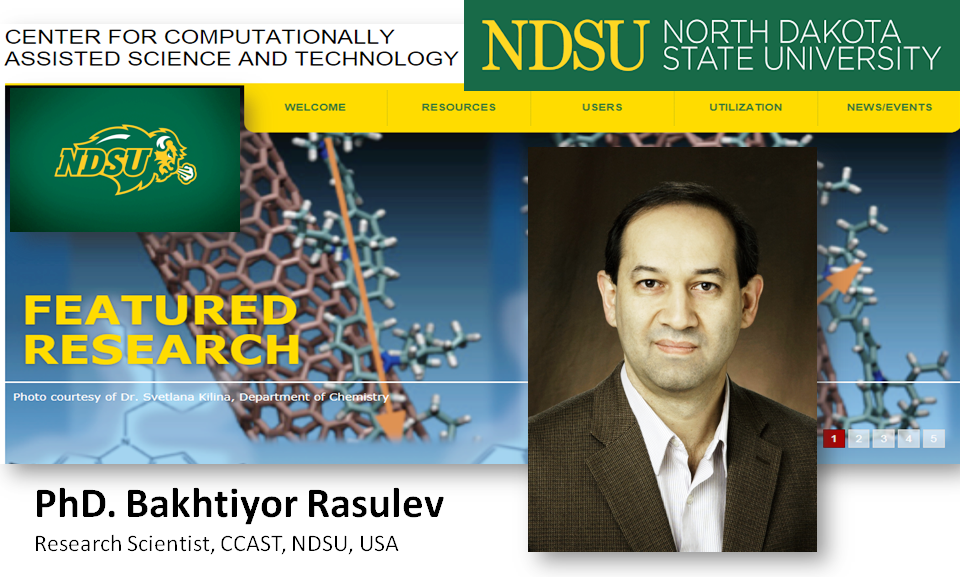
Prof. Bakhtiyor Rasulev, President of MOL2NET Scientific Committee for Polymers & Materials Sciences.
Department of Coatings and Polymeric Material, North Dakota State University (NDSU), Fargo, USA.
Honor Chairperson

Prof. Jerzy Leszczynski, (USA Presidential Distinguished Fellow)
Director CREST NSF Interdisciplinary Center for Nanotoxicity (ICN),
Dept. of Chem. and Biochem., Jackson State University (JSU), USA.
Honor Scientific Committee
Prof. Juan M. Ruso, Department of Applied Physics,
Faculty of Physics, University of Santiago de Compostela (USC), Spain.
Prof. Natalia D.S. Cordeiro, Department of Chemistry and Biochemistry,
Faculty of Sciences, University of Porto, Porto, Portugal.
Assoc. Prof. Ricardo Grau-Crespo, Department of Chemistry,
University of Reading, Whiteknights, Reading, United Kingdom.
Prof. Juan M. Gutierrez-Zorrilla, Dir. Dept. of Inorganic Chemistry,
Faculty of Science and Technology, UPV/EHU, Campus Biscay, Basque Country, Spain.
Prof. Jose Luis Vilas, Dir. Dept. of Physical Chemistry,
Faculty of Science and Technology, UPV/EHU, Campus Biscay, Basque Country, Spain.
Prof. Luis Lezama, Department of Inorganic Chemistry,
Faculty of Science and Technology, UPV/EHU, Campus Biscay, Basque Country, Spain.
Prof. Alla Toropova, Laboratory of Environmental Chemistry and Toxicology,
Istituto di Ricerche Farmacologiche Mario Negri IRCCS, Milano, Italy.
Prof. Andrey Toropov, Laboratory of Environmental Chemistry and Toxicology,
Istituto di Ricerche Farmacologiche Mario Negri IRCCS, Milano, Italy.
Scientific Committee
Dr. Natalia Sizochenko, Department of Computer Science,
Dartmouth College, Hanover, NH, USA.
Dr. Guillermin Agüero, CIIMAR/CIMAR, Interdisciplinary Centre of Marine and
Environmental Research, University of Porto, Portugal.
Dr. Gerardo M. Casañola-Martin, Dept. of Coatings and Polymeric Materials,
North Dakota State University (NDSU), Fargo, USA.
Publication Advisory Chairman
Prof. González-Díaz H., IKERBASQUE Professor, Email: mol2net.chair@gmail.com
(1) Dept of Org. Chem. II and Basque Center for Biophysics (CSIC UPV/EHU),
University of the Basque Country UPV/EHU , 48940, Leioa, Biscay, Spain.
(2) IKERBASQUE, Basque Foundation for Science , 48011, Bilbao, Biscay, Spain.
ICTs, Bioethics & Regulatory Affairs Chairperson
Dr. Aliuska Duardo-Sanchez (Law.Lic., Ph.D. TICs & Legal Sciences)
PANELFIT European Commission Project Manager. Research Group: Chair in Law and The Human Genome,
Dept. of Public Law, University of Basque Country (UPV/EHU), Campus Biscay, Leioa 48940, Spain.
05. NICEXSM-02: North-Ibero-American Congress on Exp. and Simul. Methods, Valencia, Spain-Miami, USA, 2016

Welcome Message
We are glad to invite all colleagues worldwide to participate on a new edition of the workshop NICEXSM-05: North-Ibero-American Congress on EXperimental and Simulation Methods, Valencia, Spain - Miami, USA, 2016. The workshop publish totally free of charge communications in multidisciplinary sciences involving experimental and/or computational methods. The field of application include, but are not limited to, Biomolecular, Biomedical, Materials, Environmental, Trade, Learning, Education, and Social sciences in general (see scope section).
North-Ibero-American Trans-Atlantic Host Institutions. This is an Inter-university Trans-Atlantic workshop co-chaired by intuitions of the North-Ibero-America and Europe cultural area. From Iberian Europe's side, the founder chairpersons are professors of the Institute of Molecular Science (ICMol), University of Valencia (UV), and the Catholic University of Valencia (UCV), Valencia, Spain. From the America's side the workshop is co-hosted by professors of Department of Systems and Computer Engineering, Carleton University (UCARLETON), Canada, Center for Invetigations and Advanced Studies on Animal Health (CIESA) , Autonomous University of the State of Mexico(UAEMEX), México, and Department of Mathematics Miami Dade College (MDC), Miami, USA. From Lusitanic cultural area the Europe chairpersons come from Department of Chemistry and Biochemistry, University of Porto (UPORTO), Porto, Portugal and the America Chairperson from Dept. de Química, Universidade Federal da Paraíba (UFPB), Paraíba, Brasil. All in all, the workshop is associated to the MOL2NET (From Molecules to Networks), International Conference Series on Multidisciplinary Sciences, ISSN: 2624-5078, MDPI SciForum, Basel, Switzerland, 2020. Consequently, the founders and co-host chairs come also from the University of The Basque Country (UPV/EHU) and IKERBASQUE, Basque Foundation for Science, Bilbao, Basque Country.
Working Languages. English is the main working language of the workshop. However, as a North-Ibero-American inclusive conference the workshop aims to accept papers to be published in multiple languages spoken on the countries, states, and communities of the entire North-Ibero-American area of influence. It involve, but is not limited to: México, Brazil, Spain, Portugal, USA, Canada, Chile, Ecuador, Basque Country, Catalunya, Valencia, Galicia, etc. Consequently, we accept papers on the following languages: English, Spanish, Portuguese, French, Basque (Euskera), Catalá / Valenciano, and Galego. We also accept bi-lingual posters in two-column format, e.g, English-Basque, English-Spanish, English-Portuguese, Spanish-Galego, etc.
Scope and Target Audience. This conference focus on both under-graduated, MSc, and PhD students, as well as Professors, Engineers, and Researchers. The topics of interest cover both Experimental Research and Computational Modelling and Simulation Methods. We made special emphasis on the use of new Technologies of Information and Computation (ITCs) to support Experimental research.
The experimental methods made special emphasis on experimental methods in bio-molecular sciences and biomedical sciences. Examples of experimental methods of interest are those used on Biophysics, Molecular Biology, Medicinal Chemistry, Biomaterials, Biotechnology, Biomedical Engineering, etc. such as Microscopy, Spectroscopy (NMR, IR, Raman, X-Ray) for Biomolecules Characterization, Image recording methods (fNMRi), EEGG and ECG, etc.
The computational methods include, but are not limited to, Computational Biophysics, Computational Biology, Quantum Chemistry, Bioinformatics, Systems Biology, Complex Networks, Discrete Mathematics, Mathematical Analysis, Complex Networks Sciences, Statistics, Data Analysis, Artificial Intelligence (AI), Machine Learning, Deep Learning, etc.
Bioethical, Legal & Regulatory Affairs. Last, not the least, the workshop deals with all the Legal, Regulatory, and Bioethics issues emerging from the use of both experimental and modelling and simulation methods in the previous areas. This include, Drug, Gene, Protein, Vaccine, Biomarkers, and Biomaterials patentability, Personalized Medicine and Personal Data Protection, Cybersecurity, Cryptocurrency Mining, Data Protection in Personal Image Processing, Software and Models Copyrights, etc.
Abstract preparation and submission. We strongly recommend you to read carefully the notes to participants at the following page [Instructions to authors] about publication model, copyright, authors responsibilities, etc. Submit your communications in two steps, first submit your title, authors, and abstract. Next, upload your communication after abstract approval.
MOL2NET NICEXSM Associated Workshops

SRI-08: The 8th Annual Symposium of Summer Research Institute, Saint Thomas University, September 16th, 2016
Dear colleagues we welcome you to the symposium of the Summer Research Institute (SRI) with Head Quarters (HQ) at Saint Thomas University (STU), and supported by Miami Dade College (MDC), Miami, Downtown, FL, USA . This is face-to-face (in person) workshop associated to and hosted online by MOL2NET-2, International Conference of Multidisciplinary Sciences, 2016, MDPI, Sciforum, Basel, Switzerland, with HQs, University of The Basque Country (UPV/EHU), and supported by IKERBASQUE, Basque Foundation for Science, Basque Country, Bilbao, Spain.
Welcome Message from Chairman
Eight years have passed since the First Annual Undergraduate Summer Research Symposium. Over this period of time, the School of Science, Technology, and Engineering Management of Saint Thomas University (STU) in partnership with Miami Dade College (MDC) and with the continuous support of the faculty and staff has provided an excellent internship program to our students and those coming from our partner’s institutions. From the start the Carnival Cruise Lines Science and Technology Building focused on the hands-on research experience. This places our students in an excellent position to gain entrance into graduate, or professional Schools, or to directly enter the workforce in South Florida. Most students in other institutions do not have this research opportunity until they reach graduate school.
The faculty and staff of the School of Science are committed to providing a quality education in the sciences and offer the unique opportunity to talented undergraduate students, to experience hands-on research in ten research laboratories alongside their professors. In addition, the Summer Research Institute (SRI) has enhanced the instrumentation capacity of our institution. Such improvements have allowed deepening our research projects as well as to establish new alliances in research and development. Results from our projects already circulate in local, national and international conferences, augmenting this way the visibility of the institution and the pride that students might have for their faculty and work accomplished. The eight edition of the SRI offered a continuous lecture series “Moving into the Future” on a weekly basis. Ten speakers from University of Miami, Florida International University, and local Technological companies came to St. Thomas to share their wisdom as an in kind contribution.
This year, the memories of the Annual Symposium will be published online in the open source forum MOL2NET of Sciforum platform. All presentations will be peer reviewed and a DOI number will be assigned. MOL2NET conference of Sciforum is one of the platforms internationally recognized for scientific exchange. This annual edition is full of diversity in topics, approaches, and integration of disciplines, representing one of the common paradigms of modern science, inter-disciplinarity, teamwork and networking. I hope you will enjoy the program and the presentations.
Special thanks to our sponsors, Miami Dade College, STEM-TRAC grant, St. Thomas School of Science, Technology, and Engineering Management, Yager Foundation, Monet Coiffure, In Fashion Forever, and Physics & Mathematics Solutions, who provided funding for major and minor activities associated with the 2016 edition. Follow the link to download and/or read the full program [SRI08 Program]
SRI-08 Chairperson: Prof. David Quezada, Associate Professor of Physics, Email: dquesada@stu.edu
Saint Thomas University (STU), Carnival Building, Room 115, Miami, FL, USA. (MOL2NET Honor Committee)
SRI-08 Advisory Chairman: Prof. Humberto González-Díaz, IKERBASQUE Prof., Ph.D., Email: humberto.gonzalezdiaz@ehu.eus
(1) Department of Organic Chemistry II, University of Basque Country (UPV/EHU), Campus Bizkaia, Basque Country, Spain.
(2) IKERBASQUE, Basque Foundation for Science, Bilbao, Bizkaia, Basque Country, Spain.
(MOL2NET Conference Chairman).
CIESABIO'16 Workshop
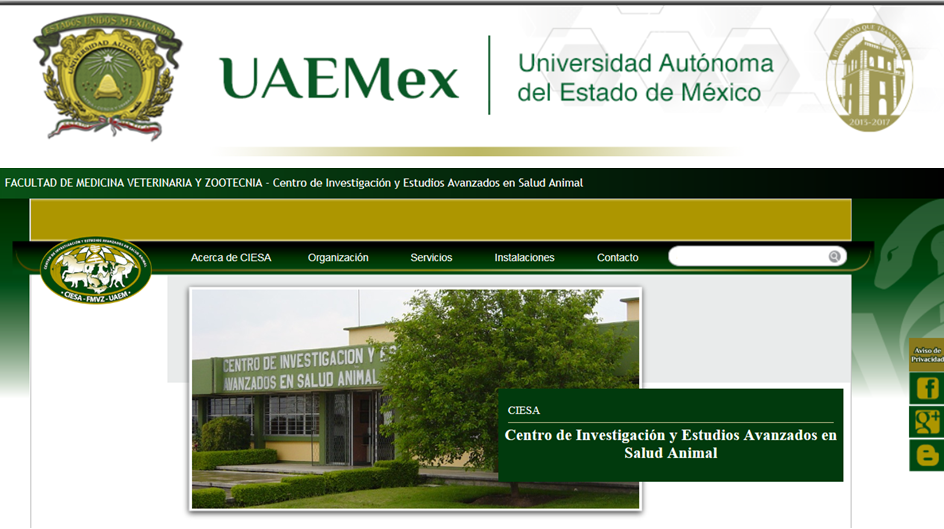
NIXMSM is going to publish this year the works presented on the CIESABIO 2016, the Workshop Series on Biotechnology and Zoonotic Diseases of the CIESA, Center for Invetigations and Advanced Studies on Animal Health of the FMVZ Faculty of Medical Veterinary and Zootechnique, of the UAEMEX Autonomous University of the State of Mexico. This workshop focus on topics related to Biotechnology, Emerging, and Zoonotics Diseases and Medical Veterinary in general, as well as topics topics from Multidisciplinar Sciences like Molecular Biology, Medicinal Chemistry, Bioinformatics, Chemoinformatics, Statistics, etc. applied to Emerging, and Zoonotics Diseases. We welcome submissions of short proceedings (1-2 pages), posters, short communications (3-5 pages), etc. from research groups around the world. We encourage more specifically students of MSc. / Ph.D. programs to send their contributions, in particular the students of CIESA along with students of other research centers in the world. Submissions of contributions will be open from now on until 5 December 2016, the publication of results will be asap upon acceptance by one of the chairs of the conference. The workshop runs presentially at CIESA Center, FMVZ, UAEMEX, Toluca, México. However, the online platform will be also open to worlwide participants to post comments, questions, and answers online from 5–15 December 2016 together with all other contributions submited to the MOL2NET conference. Manuscripts for the proceedings issue must have the configuration specified on the official template of Mol2Net conference (please download template from conference web or contact us).
WRSAMC2016: Workshop in Research Sciences Applied to Medicinal Chemistry
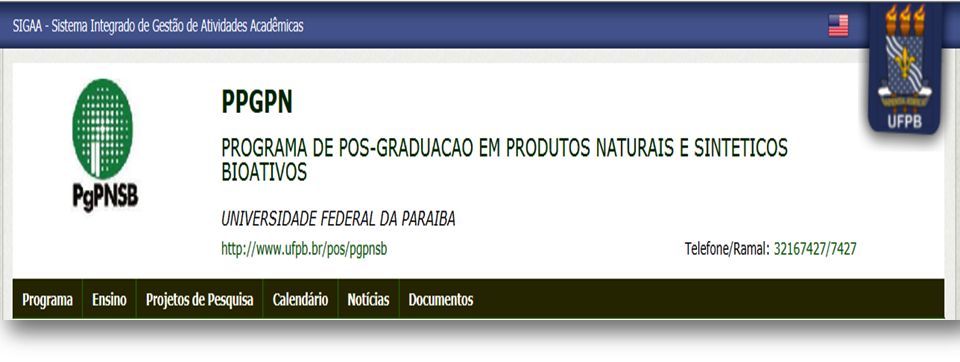
NIXMSM-02 is going to publish also the works presented on the WRSAMC2016: Workshop in Research Sciences Applied to Medicinal Chemistry, organized by researches from Department of Chemistry, Programa de Pós-Graduação em Produtos Naturais e Sintéticos Bioativos (PgPNSB - Postgraduate Program in Natural Products and Synthetic Bioactive) and Hospital Universitário of Universidade Federal da Paraíba (UFPB). This is workshop also is associated to MOL2NET-2 International Conference on Multidisciplinar Sciences.
Steps for Participation
(0) Register, Sign in/Login, to Sciforum platform [Sciforum login] (All the year)
(1) Submit the title and abstract, select a section or workshop (do not upload paper here) [Submit New Abstract] (until Dec-15)
(2) Wait for Sciforum abstract acceptance email, follow the link, and/or login to upload paper, doc and pdf format (until Dec-15)
(3) Download template doc and prepare your communication [NIXMSM Template File.doc] (until Dec-15)
(4) Wait for paper acceptance and publication emails (follow link to proofread your paper) (Asap after upload)
(5) Communicate with chairpersons if corrections are necessary, including past editions (All the year)
(6) Log in to post comments, questions, or answers in a section or one of the workshops (Dec-15 to Dec-20)
(7) Contact chairpersons if you need author (publication) or attendance (posting) certificate for conference and/or workshops (All the year)
Honor Scientific Committee (Chairpersons)
Prof. Gloria Castellano, Email: gloria.castellano@ucv.es
Director of Department of Experimental Sciences and Mathematics,
Catholic University of Valencia (UCV), Valencia, Spain.
Editor of NEREIS, ISSN: 1888-8550, Revista Iberoamericana
Interdisciplinar de Métodos, Modelización y Simulación
Prof. Francisco Torrens, Email: Francisco.Torrens@uv.es
Institute of Molecular Science (ICMol),
University of Valencia (UV), Valencia, Spain.
Prof. David Quesada, Email: dquesada@mdc.edu
Director of Dept. of Mathematics, Miami Dade Colege (MDC), Miami, FL, USA.
Prof. James Robert Green, Email: jrgreen@sce.carleton.ca
Dept. of Systems and Comput. Eng., Carleton University, Canada.
Prof. Inmaculada Arostegui,
Dept. of Applied Mathematics and Statistics,
Basque Center for Applied Mathematics (BCAM),
University of The Basque Country UPV/EHU, Bilbao, Spain.
[MOL2NET Welcome Video, Ongi Etorri Video (Euskera)]
Prof. Jose L Medina-Franco, Email: medinajl@unam.mx
National Autonomous University of Mexico (UNAM), México.
Prof. Natalia D.S. Cordeiro, Email:
Department of Chemistry and Biochemistry, University of Porto, Porto, Portugal.
Prof. Marcus Tullius Scotti , Email: mscotti@ccae.ufpb.br
Universidade Federal da Paraíba - Campus I, Cidade Universitária, Paraíba, Brasil.
Ph.D. Esvieta Tenorio-Borroto, Email: etenoriob@uaemex.mx
CIESA, Faculty of Veterinary Medicine and Animal Science,
Autonomous University of the State of Mexico, Toluca, 50090, Mexico.
(CIESABIO 2016 Chairperson),
Scientific Committee
Prof. Gloria Castellano, Dir. Dept. of Exp. Sci. and Math., Catholic University of Valencia (UCV), Valencia, Spain.
Prof. Francisco Torrens, Inst. of Molecular Science (ICMol), Univ. of Valencia (UV), Valencia, Spain.
Prof. Juan Carlos Vázquez Cagoyán, CIESA, Autonomous University of the State of Mexico, Toluca, Mexico.
(CIESABIO 2016 Chairperson)
Prof. Simón Martínez Castañeda, CIESA, Autonomous University of the State of Mexico, Toluca, Mexico.
(CIESABIO 2016 Chairperson)
Prof. Luciana Scotti, Hospital Universitário, Universidade Federal da Paraíba - Campus I,
Cidade Universitária, CEP: 58.051-900, João Pessoa - Paraíba - Brasil.
Emails: luciana.scotti@gmail.com
Prof. Wallace Duarte Fragoso, Departamento de Química, Centro de Ciências Exatas e da Natureza, Universidade Federal da Paraíba - Campus I, Cidade Universitária, CEP: 58.051-900 João Pessoa - Paraíba - Brasil.
Prof. Francisco Jaime Bezerra Mendonça Junior, Centro de Ciências Biológicas e Sociais Aplicadas, Universidade Estadual da Paraíba, Campus V - João Pessoa. Rua Horácio Trajano de Oliveira s/n, CEP>, 58020540 - João Pessoa, Paraíba – Brasil
Prof. Fabio Correia Sampaio, Departamento de Odontologia Clínica e Social, Centro de Ciências da Saúde Universidade Federal da Paraíba, Campus I, Cidade Universitária, CEP: 58.051-900, João Pessoa - Paraíba - Brasil.
Prof. Emidio Vasconcelos Leitão da Cunha, Departamento de Farmácia, Centro de Ciências Biológicas e da Saúde, Campus I, 58429-500, Campina Grande, Paraíba – Brasil
Dr. Vicente Carlos de Oliveira Costa, Instituto de Pesquisa em Farmacos e Medicamentos, Universidade Federal da Paraíba - Campus I, Cidade Universitária, CEP: 58.051-900, João Pessoa - Paraíba – Brasil.
Prof. Mateus Feitosa Alves, Departamento de Ciências Farmacêuticas, Centro de Ciências da Saúde, Universidade Federal da Paraíba - Campus I, Cidade Universitária, CEP: 58.051-900 João Pessoa - Paraíba – Brasil.
Prof. Jorge Gálvez, Dept. of Physical Chemistry, Faculty of Pharmacy, University of Valencia, Spain.
Prof. Ramon García-Domenech, Dept. of Physical Chemistry, Faculty of Pharmacy, University of Valencia, Spain.
Prof. Enrique Onieva, DEUSTOTECH Institute, University of Deusto, Bilbao, Spain.
Prof. Facundo Pérez Giménez, Department of Physical Chemistry, Faculty of Pharmacy, University of Valencia, Spain.
Dr. Carlos Polanco González, Dept. of Mathematics, Universidad Nacional Autonoma de México (UNAM), México.
Prof. Jesus V. De Julián Ortiz, Department of Physical Chemistry, University of Valencia, Spain.
Dr. Guillermin Agüero, CIIMAR/CIMAR, University of Porto, Portugal.
Prof. Alejandro Pazos, Ph.D., M.D., Director of Department of Computation, University of Coruña (UDC), Coruña, Spain.
Prof. Cristian R. Munteanu, Department of Computation, University of Coruña (UDC), A Coruña, Spain.
Prof. Juan M. Ruso, Dept. of Applied Physics, University of Santiago de Compostela (USC), Spain.
Prof. Yovani Marrero-Ponce, Dept. of Physical Chemistry, Faculty of Pharmacy, University of Valencia, Spain.
Prof. Eduardo Tejera, Bio-Cheminformatics, Universidad de Las Americas (UDLA), Quito, Ecuador.
Honor Advisory Chairman
Prof. Humberto González-Díaz H., IKERBASQUE Professor, Email: mol2net.chair@gmail.com
(1) Department of Organic and Inorganic Chemistry and Basque Centre for Biophysics,
University of the Basque Country UPV/EHU , 48940, Leioa, Biscay, Spain.
(2) IKERBASQUE, Basque Foundation for Science , 48011, Bilbao, Biscay, Spain.
ICTs & Regulatory Affairs Chairperson
Dr. Aliuska Duardo-Sanchez (Law.Lic., Ph.D. TICs & Legal Sciences),
Faculty of Law, University of Santiago de Compostela, Spain.
Congress Chair
Dr. Esvieta Tenorio-Borroto
06. MODECO-01: Workshop on Molecular Diversity & Ecosystems, Puyo, Ecuador-Porto, Portugal, 2016
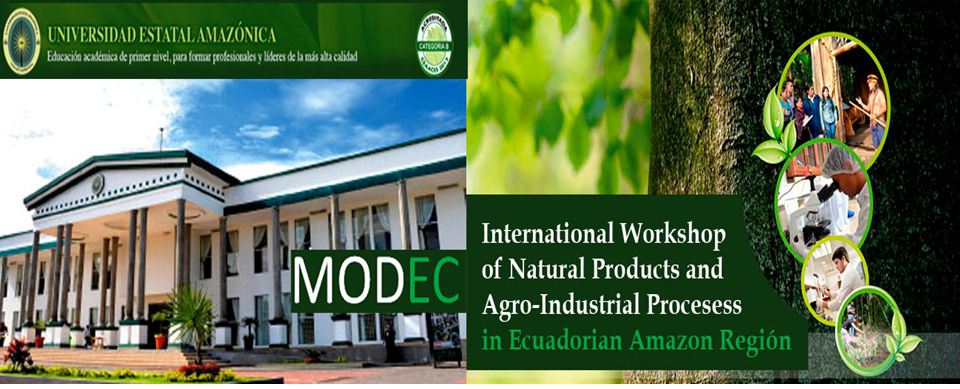
Wellcome Message
Welcome to the MODECO-06, Molecular Diversity & Ecosystems, From Amazon to Oceans, Puyo, Ecuador-Porto, Portugal, 2016. This workshop focus on the research of climate impact, preservation, and environment-friendly industrial development of forests and oceans. The workshop promotes the application of the Multidisciplinary Sciences for climate research and to the development of natural products and agro-industrial processes in both Ecuadorian Amazon and Pacific and Atlantic Oceans and coastal regions. It involves methodologies ranging from experimental chemistry and biomolecular sciences, computational methdos, economical, social, bioethics, regulatory and legal issues.
Partners & Promoters. This is a trans-atlantic inter-university workshop. On the Americas' side the workshop is chaired and co-hosted by professors of the Amazon State University's (UEA), Puyo, Amazon, Ecuador. From Europe's side the workshop is chaired and co-hosted by researchers and professors of the Interdisciplinary Centre of Marine and Environmental Research (CIIMAR), University of Porto (UPORTO), Porto, Portugal. The workshop was founded and is co-chaired and promoted by researchers of the University of The Basque Country (UPV/EHU) endowed by IKERBASQUE, Basque Foundation for Science, Bilbao, Basque Country, Spain.
Host Conference. The workshop is associated to and hosted online by the MOL2NET International Conference Series on Interdisciplinary Sciences, ISSN: 2624-5078, MDPI SciForum, Basel, Switzerland. This conference is hosted online by the SciForum platform supported by Multidisciplinary Digital Publication Institute (MDPI), Basel, Switzerland with roots in the Molecular Diversity Preservation International (MDPI) institute. Please, contact the workshop chairmen for further details.
Working Languages. English is the main working language of the workshop. However, as a North-Ibero-American-Europe inclusive conference the workshop aims to accept papers to be published in multiple languages spoken on the countries, states, and communities of the entire North-Ibero-American-Europe area of influence. It involve, but is not limited to: Ecuador, France, México, Brazil, Spain, Portugal, USA, Canada, Chile, Basque Country, Catalunya, Valencia, Galicia, etc. Consequently, we accept papers on the following languages: English, Spanish, French, Portuguese, Basque (Euskera), Catalá / Valenciano, and Galego. We also accept bi-lingual posters in two-column format, e.g, English-Basque, English-Spanish, France-English, English-Portuguese, Spanish-Galego, etc. Other languages than those cited above may be considered but it could conditioned to the fluency of the experts in the revieweing panel.
Publication Modalities. There are two separted routes for publication. Firstly, all communications submited directly to the workshop will be Published Online Free of Charge open year round. In addition, all authors are invited to submit by separate (optional) full paper versions of their communications to the MDPI journal associate special issue, in this case (APC apply). In th first case, communications submitted to the workshop are expected to be short papers or posters consisting of 1-3 pages. Be aware that the submission is a two step process. First you must register and submit a tentative title, authors list and abstract. Next, you need to submit your full publication upon acceptance of the abstract by the committee. Full communications submited to workshop will be in the Sciforum platform, with doi number as soon as possible upon acceptance.
Workshop Topics of Interest: The topics of the conference, include, but are not limited to: Marine chemical pollution; Marine and Forest Microorganisms; Marine and Forest environment; Metabolomics; Microbial biofilms formation. Experiental and Computational chemistry, Cheminformatics, and Bioinformatics of Forest and Marine Natural products. Mathematical modelling of Natural, Climate, Biotechnological, Agricultural, and Environmental Process. Organic and Functional Foods of Forest and Ocean origin. BioTrade: Sustainability and Trading of Natural Products of the Amazon and Coastal regions. Production systems with agro-business and forestry purposes or biomass for energy purposes. Environmental impacts in Forest and Ocean of Climate Changes and Industrial exploitation. Geographic Information Systems (GIS) for Climate and Land cover monitoring and forecasting. Agro-industrial development processes.
- Abstracts submission until Oct-01.
- Abstract acceptance until Oct-03.
- Communications submission until Nov-01.
- Communications acceptance until Nov-15.
- Communications publication until Nov-30.
Authors liability. Before to submit your work be aware that the editorial publication model of this workshop is similar to a PREPRINTservice. It means that works presented here have to be considered only as preliminary communications and not as final post-print versions of journal papers. In this sense, even when all the works published are revised by at least one member of the committee and/or external reviewer this level of revision checks only apparent scientific soundness and general scientific interest. In a second level, collective post-publication review, the works published may receive comments (published in the form of posts) from all the participants registered in the conference. The authors are prompted to use all these opinions to write the full versions of their works and submit them to publication in a peer-reviewed scientific journals according to SciForum copyright rules. In any case, the authors are the only one responsible of the veracity of the contents, checking similarity to other works, citing properly previous works, etc.
Honor & Executive Chairpersons

Dr. Guillermin Agüero, CIIMAR, Interdisciplinary Centre of Marine and Environmental Research, University of Porto, Portugal.
Email: gchapin@ciimar.up.pt

Prof. Amaury Pérez Martínez , Universidad Estatal Amazónica, Ecuador.
Email: amperez@uea.edu.ec
Founder Chairpersons
Dr. Gerardo M. Casañola Martin, North Dakota State University, ND, Fargo, USA.
Prof. Oscar M. Rivera Borroto, Houston Community College, Houston, TX, USA.
HQs Honor Advisory Committee
Prof. Agostinho Antunes, CIIMAR, Interdisciplinary Centre of Marine and
Environmental Research, University of Porto, Scientific-Technical Director of
Matosinhos Environmental Center (CMIA), Matosinhos, Portugal.
Prof. Dr. C. Julius Caesar Vargas Burgos, Full Professor
Rector of Amazon State University (UEA), Puyo, Ecuador
Prof. Reynaldo Alemán Pérez, Scientific Director
Universidad Estatal Amazónica, Ecuador.
Honor Advisory Committee
Prof. Eugenio Uriarte Villares, Universidad de Santiago de Compostela, Spain.
Prof. Pedro Fernández de Córdoba Castellá, Universidad Politécnica de Valencia, Spain
Scientific Committee Abroad
Dr. Maria Joao Matos, Postdoc Universidad de Santiago de Compostela, Spain,
Former PostDoc Dept. of Chemistry, University of Cambridge, United Kingdom.
PhD. Dany Domínguez Pérez, CIIMAR Centre, University of Porto, Porto, Portugal.
Prof. Juan Esteban Miño Valdés, Universidad Nacional de Misiones, Argentina.
Prof. Luis E. Arteaga-Pérez, Universidad del Bío-Bío: Concepción, Chile.
Prof. Yannay Casas Ledón, Concepción University, Chile.
Prof. Luis E. Arteaga-Pérez, University of Bio-Bio, Chile.
National Scientific Committee (Ecuador)
Prof. Yovani Marrero-Ponce, University San Francisco de Quito, Quito, Ecuador.
Prof. Eduardo Tejera, Bio-Cheminformatics, niversidad de Las Americas (UDLA), Quito, Ecuador.
Prof. Vinicio Armijos , Universidad de Las Americas (UDLA), Quito, Ecuador.
Prof. Yunierkis Pérez-Castillo, Universidad Técnica Particular de Loja, Ecuador.
Prof. Alejandro Cabrera Andrade, Universidad de Las Americas (UDLA), Quito, Ecuador.
Prof. Emilia Vasquez, Biotechnology, Universidad de Las Americas (UDLA), Quito, Ecuador.
Prof. Ruth Irene Arias Gutierrez, Universidad Estatal Amazónica, Ecuador.
Prof. Neyfe Sablón Cossío, Universidad Técnica de Manabí, Ecuador.
Prof. Karel Dieguez Santana, Universidad Estatal Amazónica, Ecuador.
Prof. Manuel Lazaro Pérez Quintana, Universidad Estatal Amazónica, Ecuador.
Prof. Matteo Radice, Universidad Estatal Amazónica, Ecuador.
Prof. Pedro Jesús Lopez Trabanco, Universidad Estatal Amazónica, Ecuador.
Prof. Viviana Fernanda Quevedo Tumailli , Universidad Estatal Amazónica, Ecuador.
Eng. Delfín Bernabé Ortega Tenezaca, Universidad Estatal Amazónica, Ecuador.
Prof. Dagoberto Acosta Iglesias, Universidad Estatal Amazónica, Ecuador.
Prof. Manuel Lazaro Pérez Quintana, Universidad Estatal Amazónica, Ecuador.
Prof. Javier Dominguez Brito, Universidad Estatal Amazónica, Ecuador.
Prof. Maria Isabel Viamonte Garces, Universidad Estatal Amazónica, Ecuador.
Prof. Estela Guardado, Universidad Estatal Amazónica, Ecuador.
Prof. Laura Scalvenzi, Universidad Estatal Amazónica, Ecuador.
Prof. Luis Ramón Bravo Sánchez, Universidad Estatal Amazónica, Ecuador.
Prof. Reinier Abreu Naranjo, Universidad Estatal Amazónica, Ecuador.
Prof. Yasiel Arteaga Crespo, Universidad Estatal Amazónica, Ecuador.
Prof. Yudel García Quintana, Universidad Estatal Amazónica, Ecuador.
Prof. Carlos Alfredo Bravo Medina, Universidad Estatal Amazónica, Ecuador.
Prof. Víctor Rodrigo Cerda Mejía, Universidad Estatal Amazónica, Ecuador.
Honour Publication Chairman
Prof. González-Díaz H., IKERBASQUE Professor,  https://orcid.org/0000-0002-9392-2797, Email: mol2net.chair@gmail.com
https://orcid.org/0000-0002-9392-2797, Email: mol2net.chair@gmail.com
(1) Dept. of Organic Chemistry II, University of the Basque Country UPV/EHU , 48940, Leioa, Biscay, Spain.
(2) IKERBASQUE, Basque Foundation for Science , 48011, Bilbao, Biscay, Spain.
ICTs & Regulatory Affairs Chairperson
Dr. Aliuska Duardo-Sanchez (Law.Lic., Ph.D. TICs & Legal Sciences),
Faculty of Law, University of The Basque Country UPV/EHU, Basque Country, Spain.
Congress Chairs
Professor Gerardo Casañola-Martin
Dr. Oscar Miguel Rivera-Borroto
Dr. Amaury Perez Martinez
07. AIMEDIC-04: AI, Med. Info., & Biomed. Eng. Congress, Coruña, Spain-Carleton, Canada-Stanford, USA, 2016
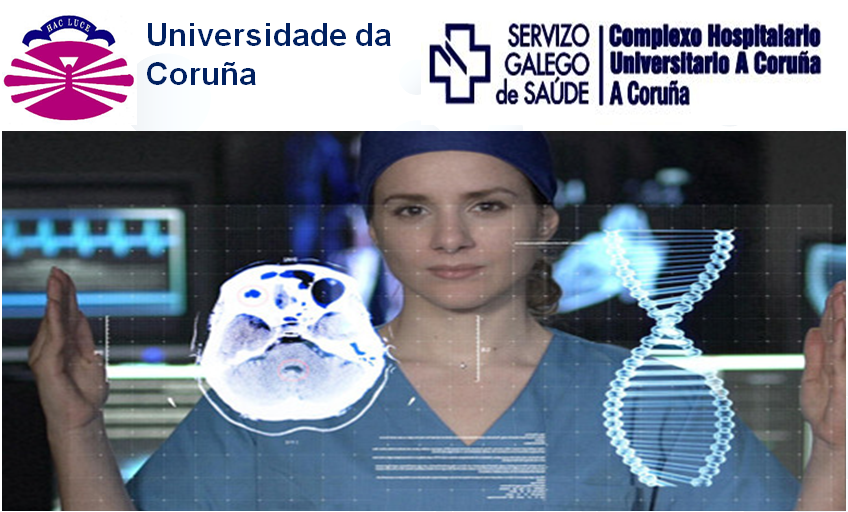
AIMEDIC-08: AI, Med. Info., & Biomed. Eng. Congress, Coruña, Spain-Carleton, Canada-Stanford, USA, 2016 congress will be held presentially at the University Hospital Complex of A Coruña (June, 20, 2016), Hospital Médico Quirúrgico San Rafael (June, 21,2016), and Faculty of Computer Sciences, UDC (June, 20-22, 2016). The chairman of this workshop is Prof. Alejandro Pazos; Ph.D., M.D., Chair and Director of Department of Computer Sciences, UDC, Coruña, Spain. The topics include, but are not limited to, Medical Imaging Processing, Medical Informatics, Medical Coding, Bioinformatics, Computer Aided Drug Desing, Data Analysis, etc. English will be the official language for online publication and presentations, as per MDPI rules, presential lectures may be in English, Spanish, or Galician.
Workshop Schedule
9:00 AM Reception, Welcome Speak, and Opening by José Manuel Vázquez Rodríguez.
Coordinador Docencia e innovación , EOXI A Coruña
Click here to download conference schedule [pdf]
Workshop Chairman
Prof. Alejandro PazosPh.D., M.D., Chair Professor of Department of Information and Communication Technologies, Faculty of Computer Sciences, University of Coruña (UDC), Coruña, Spain
|
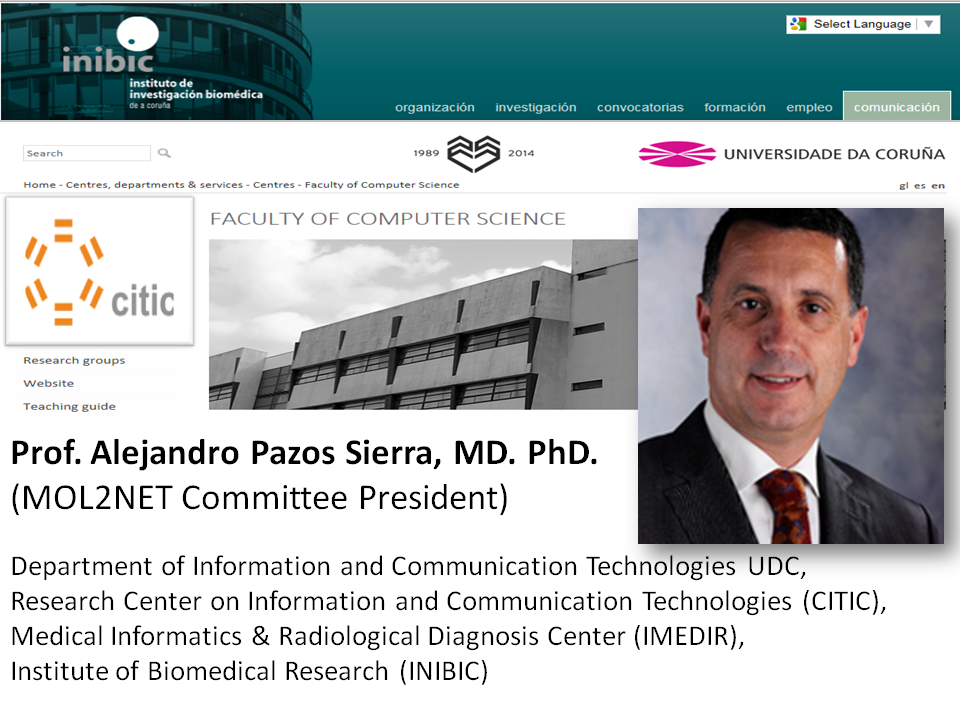 |
Scientific Committee
Dr. Antolín Rodriguez Martínez
Dr. Guillermo Vázquez González
Local Committee
Prof. Cristian Robert Munteanu
Organizing Committee
Assist. Prof. drián Carballal Mato
Ph.D. Enrique Fernández Blanco
M.Sc. Candela Rodríguez Suárez
(RNASA-IMEDIR Project Manager)
Advisory Committee
(Online Publication)
Conference Proceedings
Video Conferences Playlists
Please, visit the channel of the RANASA-IMEDIR group and/or follow the present link to visualize all the video conferences presented o this workshop [IWMEDIC playlist]. You can see these conference also on the IWMEDIC - MOL2NET shared playlist as alternative landing page [IWMEDIC mirror]
Selected Video Conferences
01. Fernández., M. Analysing the value of online health communities. In Proceedings of the MOL2NET, International Conference on Multidisciplinary Sciences, 5 December 2016–25 January 2017; Sciforum Electronic Conference Series, Vol. 2, 2016 , 09002; doi:10.3390/mol2net-02-09002
02. Seoane, J. Models of Molecular Data Integration on Cancer. In Proceedings of the MOL2NET, International Conference on Multidisciplinary Sciences, 5 December 2016–25 January 2017; Sciforum Electronic Conference Series, Vol. 2, 2016 ; doi:10.3390/mol2net-02-03827
03. Martínez Romero, M. Using biomedical ontologies to improve metadata management in CEDAR project. In Proceedings of the MOL2NET, International Conference on Multidisciplinary Sciences, 5 December 2016–25 January 2017; Sciforum Electronic Conference Series, Vol. 2, 2016 , 09013; doi:10.3390/mol2net-02-09013, https://sciforum.net/conference/mol2net-02/paper/3722
05. Pazos Sierra, J. Integration of medical data - expert systems and virtual reality on chirurgic procedures. In Proceedings of the MOL2NET, International Conference on Multidisciplinary Sciences, 5 December 2016–25 January 2017; Sciforum Electronic Conference Series, Vol. 2, 2016 , 09009; doi:10.3390/mol2net-02-09009, https://sciforum.net/conference/mol2net-02/paper/3660
06. Lizcano Casas, D. Preprocessing and data integration through automated reasoning techniques with descriptive logic. In Proceedings of the MOL2NET, International Conference on Multidisciplinary Sciences, 5 December 2016–25 January 2017; Sciforum Electronic Conference Series, Vol. 2, 2016 , 09010; doi:10.3390/mol2net-02-0901
07. Acevedo Costa, C. Collaborative Environments in Medical Imaging. In Proceedings of the MOL2NET, International Conference on Multidisciplinary Sciences, 5 December 2016–25 January 2017; Sciforum Electronic Conference Series, Vol. 2, 2016 , 09011; doi:10.3390/mol2net-02-09011
08. Rodriguez, A. RIS3 and Health. In Proceedings of the MOL2NET, International Conference on Multidisciplinary Sciences, 5 December 2016–25 January 2017; Sciforum Electronic Conference Series, Vol. 2, 2016 , 09012; doi:10.3390/mol2net-02-09012, https://sciforum.net/conference/mol2net-02/paper/3717
09. Ruíz Romero, C. Aplications of mass spectrometry to medical imagin . In Proceedings of the MOL2NET, International Conference on Multidisciplinary Sciences, 5 December 2016–25 January 2017; Sciforum Electronic Conference Series, Vol. 2, 2016 , 09006; doi: 10.3390/mol2net-02-09006
10. Martinez-Sapiña Llanas, M. Virtual Colonoscopy: State of art. In Proceedings of the MOL2NET, International Conference on Multidisciplinary Sciences, 5 December 2016–25 January 2017; Sciforum Electronic Conference Series, Vol. 2, 2016 , 09007; doi:10.3390/mol2net-02-09007, https://sciforum.net/conference/mol2net-02/paper/3656
SPONSORS
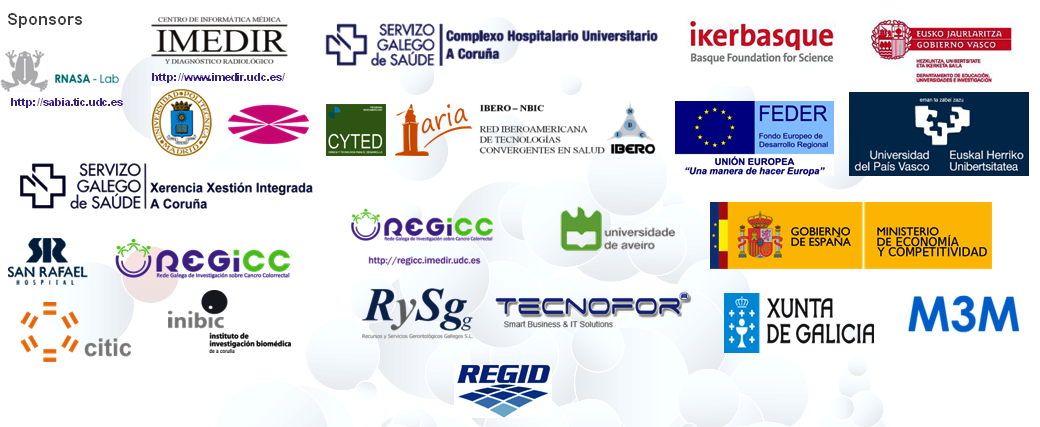
Congress Chairs
Dr. Cristian Robert Munteanu
Dr. Carlos Fernandez-Lozano
Dr. Alejandro Pazos Sierra
08. MOL2NET'16 Transversal Workshops
MOL2NET'16 Transversal Workshops
CHEMXEDIT-01 Workshop
CHEMBIONFO-02 is also the online host of the CHEMXEDIT-01, Experimental Chemistry, Education, & Info. Tech. Congress, Bilbao, Spain-Paris, France, 2015. This Inter-University workshop series is co-hosted by the Dept. of Chemistry and Biochemistry, Faculty of Sciences, University of Porto, Porto, Portugal; and the Dept. of Org. and Inorg. Chemistry, University of The Basque Country (UPV/EHU) and IKERBASQUE, Basque Foundation for Science (IKERBASQUE), Bilbao, Basque Country, Spain.
Topics of Interest. This workshop series promotes both experimental and theoretical research in Chemistry including, as well as chemical education, including but not limited to, Inorganic, Analytical, Physical, and Organic Chemistry. The topics are expected to be of wide scope. For instance, in experimental studies: Organic synthesis, Chemical reactivity, Catalysis, Solid State Chemistry, Inorganic Crystals, Crystal Symmetry, and Complexes. Physicochemistry and Analytical chemistry techniques; Spectroscopy (X-Ray, NMR, IR, EPR, Mass Spectroscopy), Chromatography and sample preparation techniques, TEM and SEM Microscopy. Also, in theoretical and computational studies: Computational Chemistry, Quantum Mechanics (Ab inition, DFT, MP3, AM1 methods), Monte Carlo (MC) algorithm, Quantitative Structure-Reactivity, Structure-Property, or Structure-Retention Relationships (QSPR/QSRR) models in organic, inorganic, physical and analytical chemistry. Chemometrics, Experimental Design, and Data Analysis in Analytical chemistry.
CHEMXEDIT Scientific Committee Prof. Françoise Dumas, CNRS, Directrice de Recherche, Prof. Université Paris-Saclay, Paris, France .
Prof. Françoise Dumas, CNRS, Directrice de Recherche, Prof. Université Paris-Saclay, Paris, France .
Prof. Maité Sylla, Assoc., Chimie Molécularie, Conservatoire National des Arts et Métiers CNAM, París, France.
WCUCW Workshop
CHEMBIOINFO-02 is also the online host of the WCUCW-01, West Coast University Capstone Workshop, Miami, FL, USA. This is the Capstone workshop for West Coast University (WCU), Miami, FL, USA. This workshop series held each academic term is devoted to fostering both education and research in multidisciplinary sciences. Nursing students completing their General Education courses at WCU form groups of three and take on the roles of scientist, medical researcher, or public health professional, all of them approaching an assigned topic from their field of expertise. They are each required to devise a study on their topic, pretend to conduct it, generate logical data to support a hypothesis, write an academic paper sharing their findings, and defend their data in a presentation.The workshop education goals focus on professors and students in the WCU Miami campus Capstone course. However, we also welcome researchers and students from other nationwide WCU campuses and researchers from other institutions around the world.
WCUCW Chairperson

Prof. Terace Fletcher, PhD, MS, Email: teFletcher@westcoastuniversity.edu
Academic Dean and Professor, West Coast University, Miami Campus, FL, USA.
Prof. Melissa Cueto, Email: meCueto@westcoastuniversity.edu
MAInstructor II, West Coast University, Miami, FL, USA
Adjunct Prof., University of Miami, Coral Gables, FL, USA.
Prof. Maykel Cruz-Monteagudo, West Coast University, Miami Campus, FL, USA.
Prof. Lazaro Pino, Assoc. Prof., West Coast University (WCU) and, Miami Dade College (MDC), Miami, FL, USA.
Prof. Sonia Arrasate, Department of Organic Chemistry II, University of Basque Country (UPV/EHU), Basque Country, Spain.
Prof. Natalia D.S. Cordeiro, Dept. of Chemistry and Biochemistry, Faculty of Sciences, University of Porto, Porto, Portugal.


1st Young Scientist Workshop UFI-QOSYC
CHEMBIOMOL'16 the host congress of the UFI QOSYC workshop for young researchers. The UFIs are Training and Research Units (TRUs), or in Spanish UFIs - Unidades de Formación e Investigación, formed by different Departments of the University of Basque Country UPV/EHU. The UFI QOSYC is the Organic Chemistry, Synthesis and Catalysis unit devoted to developing new procedures for chemical synthesis and catalysis and their application to the preparation of molecules of biological and industrial use. The "1st Workshop for Young Scientists – UFI QOSYC" will bring together early career researchers (postdocs and graduate students) from the area of organic chemistry and catalysis across the UFI QOSYC to exchange information and practice presenting their research work in a supportive scientific environment. This event will showcase the high value that young researchers bring to UFI QOSYC through their research accomplishments and provide them an opportunity to explore potential research collaborations in the University of the Basque Country UPV/EHU. Besides, it offers an excellent platform to demonstrate UFI QOSYC research activities to external audiences.
Chairpersons of 1st Young Scientist Workshop UFI-QOS
Prof. Esther Lete, Department of Organic Chemistry II, University of Basque Country (UPV/EHU), Leioa, Sarriena w/n, Bizkaia.
(Chairperson Session I)

Prof. Esther Domínguez Pérez, Dean of Faculty of Science and Technology, Department of Organic Chemistry II, University of Basque Country (UPV/EHU), Leioa, Sarriena w/n, Bizkaia. (Chairperson Session II)

Prof. Jose Luis Vicario, Department of Organic Chemistry II, University of Basque Country (UPV/EHU), Leioa, Sarriena w/n, Bizkaia. (Chairperson Session III
UFI-QOSYC Council*

Prof. Claudio Palomo Nicolau, Director Department of Organic Chemistry I, University of Basque Country (UPV/EHU), Donostia - San Sebastián Campus, Gipuzkoa. (UFI-QOSYC Council Coordinator)

Prof. Fernando P. Cossío, President of IKERBASQUE, Basque Foundation for Science, Prof. Department of Organic Chemistry I, University of Basque Country (UPV/EHU), Donostia - San Sebastián Campus, Gipuzkoa.

Prof. Francisco Palacios Gambra, Prof. Department of Organic Chemistry I, Faculty of Pharmacy / Farmazi Fakultatea, University of Basque Country (UPV/EHU), Álava Campus, Vitoria-Gasteiz.
*Professors Esther Domínguez, Esther Lete, and Jose Juis Vicario are also members of the council.
SRI-08 Workshop

SRI-08: The 8th Annual Symposium of Summer Research Institute, Saint Thomas University, September 16th, 2016
Submit New Communications
Dear colleagues we welcome you to the symposium of the Summer Research Institute (SRI) with Head Quarters (HQ) at Saint Thomas University (STU), and supported by Miami Dade College (MDC), Miami, Downtown, FL, USA . This is face-to-face (in person) workshop associated to and hosted online by MOL2NET-2, International Conference of Multidisciplinary Sciences, 2016, MDPI, Sciforum, Basel, Switzerland, with HQs, University of The Basque Country (UPV/EHU), and supported by IKERBASQUE, Basque Foundation for Science, Basque Country, Bilbao, Spain.
Welcome Message from Chairman
Eight years have passed since the First Annual Undergraduate Summer Research Symposium. Over this period of time, the School of Science, Technology, and Engineering Management of Saint Thomas University (STU) in partnership with Miami Dade College (MDC) and with the continuous support of the faculty and staff has provided an excellent internship program to our students and those coming from our partner’s institutions. From the start the Carnival Cruise Lines Science and Technology Building focused on the hands-on research experience. This places our students in an excellent position to gain entrance into graduate, or professional Schools, or to directly enter the workforce in South Florida. Most students in other institutions do not have this research opportunity until they reach graduate school.
The faculty and staff of the School of Science are committed to providing a quality education in the sciences and offer the unique opportunity to talented undergraduate students, to experience hands-on research in ten research laboratories alongside their professors. In addition, the Summer Research Institute (SRI) has enhanced the instrumentation capacity of our institution. Such improvements have allowed deepening our research projects as well as to establish new alliances in research and development. Results from our projects already circulate in local, national and international conferences, augmenting this way the visibility of the institution and the pride that students might have for their faculty and work accomplished. The eight edition of the SRI offered a continuous lecture series “Moving into the Future” on a weekly basis. Ten speakers from University of Miami, Florida International University, and local Technological companies came to St. Thomas to share their wisdom as an in kind contribution.
This year, the memories of the Annual Symposium will be published online in the open source forum MOL2NET of Sciforum platform. All presentations will be peer reviewed and a DOI number will be assigned. MOL2NET conference of Sciforum is one of the platforms internationally recognized for scientific exchange. This annual edition is full of diversity in topics, approaches, and integration of disciplines, representing one of the common paradigms of modern science, inter-disciplinarity, teamwork and networking. I hope you will enjoy the program and the presentations. Special thanks to our sponsors, Miami Dade College, STEM-TRAC grant, St. Thomas School of Science, Technology, and Engineering Management, Yager Foundation, Monet Coiffure, In Fashion Forever, and Physics & Mathematics Solutions, who provided funding for major and minor activities associated with the 2016 edition. Follow the link to download and/or read the full program [SRI08 Program]
Symposium Committee
SRI Chairperson: Prof. David Quezada, Associate Professor of Physics, Email: dquesada@stu.edu
Saint Thomas University (STU), Carnival Building, Room 115, Miami, FL, USA. (MOL2NET Honor Committee)
Publication Advisory Chair: Prof. Humberto González-Díaz, IKERBASQUE Prof., Ph.D., Email: humberto.gonzalezdiaz@ehu.eus
(1) Department of Organic Chemistry II, University of Basque Country (UPV/EHU), Campus Bizkaia, Basque Country, Spain.
(2) IKERBASQUE, Basque Foundation for Science, Bilbao, Bizkaia, Basque Country, Spain.
(MOL2NET Conference Chairman).
CBSM Workshop
Prof. Wendy Gonzalez, Dir., Cent. Bioinfo., Simul. & Model. (CBSM), Univ. of Talca, Talca, Chile.
Prof. Gabriel Nuñez, Cent. Bioinfo., Simul. & Model. (CBSM), Univ. of Talca, Talca, Chile.
Prof. Julio Caballero, Cent. Bioinfo., Simul. & Model. (CBSM), Univ. of Talca, Talca, Chile.
Committee
Hector Urbina, Cent. Bioinfo., Simul. & Model. (CBSM), Univ. of Talca, Talca, Chile.
Marcelo Rojas, Cent. Bioinfo., Simul. & Model. (CBSM), Univ. of Talca, Talca, Chile.
Secretariat: Claudia González, Cent. Bioinfo., Simul. & Model. (CBSM), Univ. of Talca, Talca, Chile.
TI support: Fabio Duran, , Cent. Bioinfo., Simul. & Model. (CBSM), Univ. of Talca, Talca, Chile.
Dr. Samuel Ortega-Farías, Universidad de Talca
Dr. Vinicius Maracaja-Coutinho, Universidad Mayor
Dra. Gabriela Repetto, Clinica Alemana.
Ing. Marcelo Rojas, BeagleBioinformatics
Dr. Cesar Astudillo, Universidad de Talca
Ing. Mg. Aucan Pedroso Rovira, Independiente
Ing. Constanza Campano, Instituto de Salud Pública
Ing. Dr(c) Raul Arias, Universidad Mayor
Flyer Video: [link], Audio: Spanish min 00:00, English min 02:45

WRSAMC2016: Workshop
WRSAMC2016: Workshop in Research Sciences Applied to Medicinal Chemistry, organized by researches from Department of Chemistry, Programa de Pós-Graduação em Produtos Naturais e Sintéticos Bioativos (PgPNSB - Postgraduate Program in Natural Products and Synthetic Bioactive) and Hospital Universitário of Universidade Federal da Paraíba (UFPB). This is workshop also is associated to MOL2NET-2 International Conference on Multidisciplinar Sciences.
Steps for Participation
(0) Register, Sign in/Login, to Sciforum platform [Sciforum login] (All the year)
(1) Submit the title and abstract, select a section or workshop (do not upload paper here) [Submit New Abstract] (until Dec-15)
(2) Wait for Sciforum abstract acceptance email, follow the link, and/or login to upload paper, doc and pdf format (until Dec-15)
(3) Download template doc and prepare your communication [NIXMSM Template File.doc] (until Dec-15)
(4) Wait for paper acceptance and publication emails (follow link to proofread your paper) (Asap after upload)
(5) Communicate with chairpersons if corrections are necessary, including past editions (All the year)
(6) Log in to post comments, questions, or answers in a section or one of the workshops (Dec-15 to Dec-20)
(7) Contact chairpersons if you need author (publication) or attendance (posting) certificate for conference and/or workshops (All the year)
Honor Scientific Committee (Chairpersons)
Prof. Marcus Tullius Scotti , Email: mscotti@ccae.ufpb.br
Universidade Federal da Paraíba - Campus I, Cidade Universitária, Paraíba, Brasil.
Scientific Committee
Prof. Luciana Scotti, Hospital Universitário, Universidade Federal da Paraíba - Campus I,
Cidade Universitária, CEP: 58.051-900, João Pessoa - Paraíba - Brasil.
Prof. Wallace Duarte Fragoso, Departamento de Química, Centro de Ciências Exatas e da Natureza, Universidade Federal da Paraíba - Campus I, Cidade Universitária, CEP: 58.051-900 João Pessoa - Paraíba - Brasil.
Prof. Francisco Jaime Bezerra Mendonça Junior, Centro de Ciências Biológicas e Sociais Aplicadas, Universidade Estadual da Paraíba, Campus V - João Pessoa. Rua Horácio Trajano de Oliveira s/n, CEP>, 58020540 - João Pessoa, Paraíba – Brasil
Prof. Fabio Correia Sampaio, Departamento de Odontologia Clínica e Social, Centro de Ciências da Saúde Universidade Federal da Paraíba, Campus I, Cidade Universitária, CEP: 58.051-900, João Pessoa - Paraíba - Brasil.
Prof. Emidio Vasconcelos Leitão da Cunha, Departamento de Farmácia, Centro de Ciências Biológicas e da Saúde, Campus I, 58429-500, Campina Grande, Paraíba – Brasil
Dr. Vicente Carlos de Oliveira Costa, Instituto de Pesquisa em Farmacos e Medicamentos, Universidade Federal da Paraíba - Campus I, Cidade Universitária, CEP: 58.051-900, João Pessoa - Paraíba – Brasil.
Prof. Mateus Feitosa Alves, Departamento de Ciências Farmacêuticas, Centro de Ciências da Saúde, Universidade Federal da Paraíba - Campus I, Cidade Universitária, CEP: 58.051-900 João Pessoa - Paraíba – Brasil.

USEDAT-02 also published the works presented at SUIWML2016: Soochow University International Workshop Series on Machine Learning and its Applications in Biomedicine. This is one scientific conference series of the School of Computer Science and Technology of Soochow University, PCR, China. This workshop focus on Machine Learning. Machine learning is the most growing branch of computer science, driven by the ongoing explosion in the availability of data. Machine learning evolved from artificial intelligence and deals with many different problems and aspects to solve various tasks, including knowledge discovery, data mining, decision support and etc. A grand challenge is to discover relevant structural patterns and/or temporal patterns in complex data, which are often hidden and not accessible to the human expert. SUIWML Committee: Prof. Quan Liu, Dir. Dept. of Software Engineering, Soochow University (SUDA), Suzhou, China, Prof. Fangzhang Li, Dean School of Computer Sciences and Technology, Soochow University (SUDA), Suzhou, China, Prof. Bairong Shen, Dir. Center of Complex Systems, University of Soochow (SUDA), PRC, China. Prof. Xiaoke Zhou, Assist. School of Computer Sciences and Technology, Soochow University (SUDA), Suzhou, China.
Congress Chair
Professor Esther Lete
09. MOL2NET Channels
MOL2NET Social Media





































